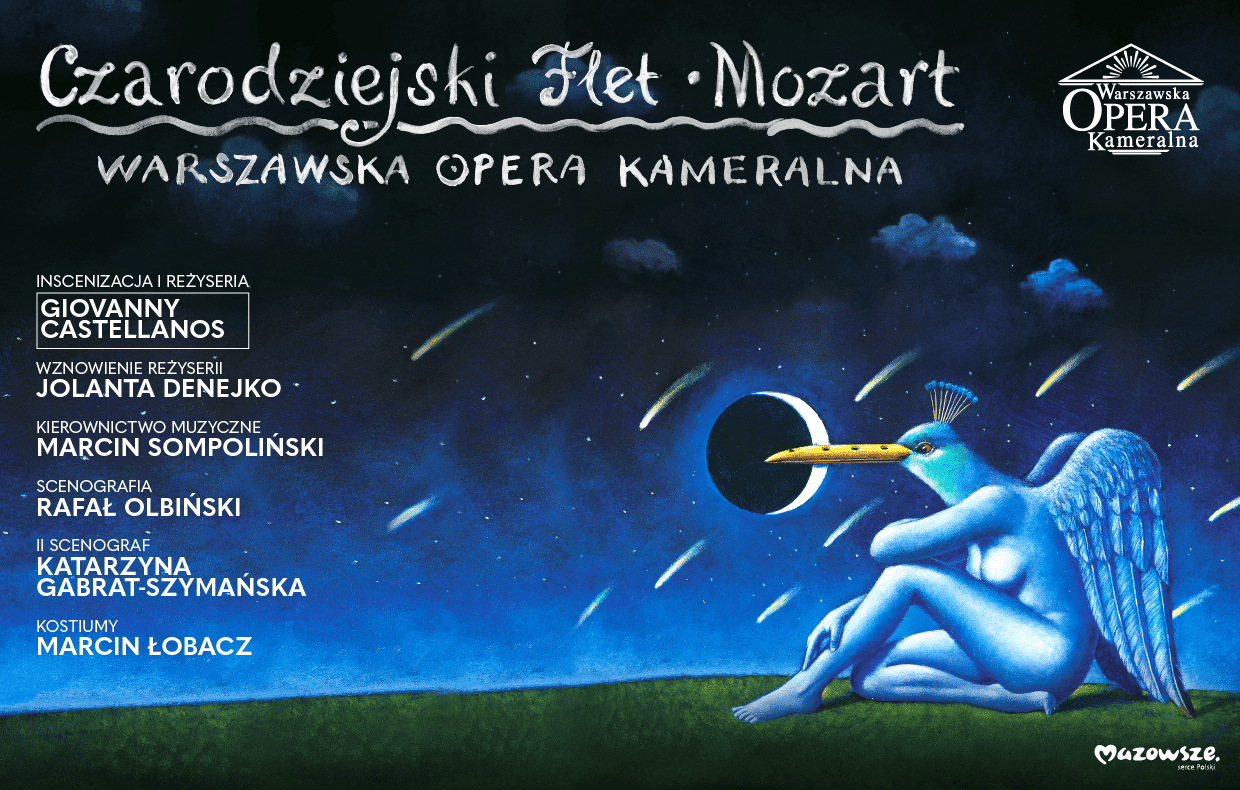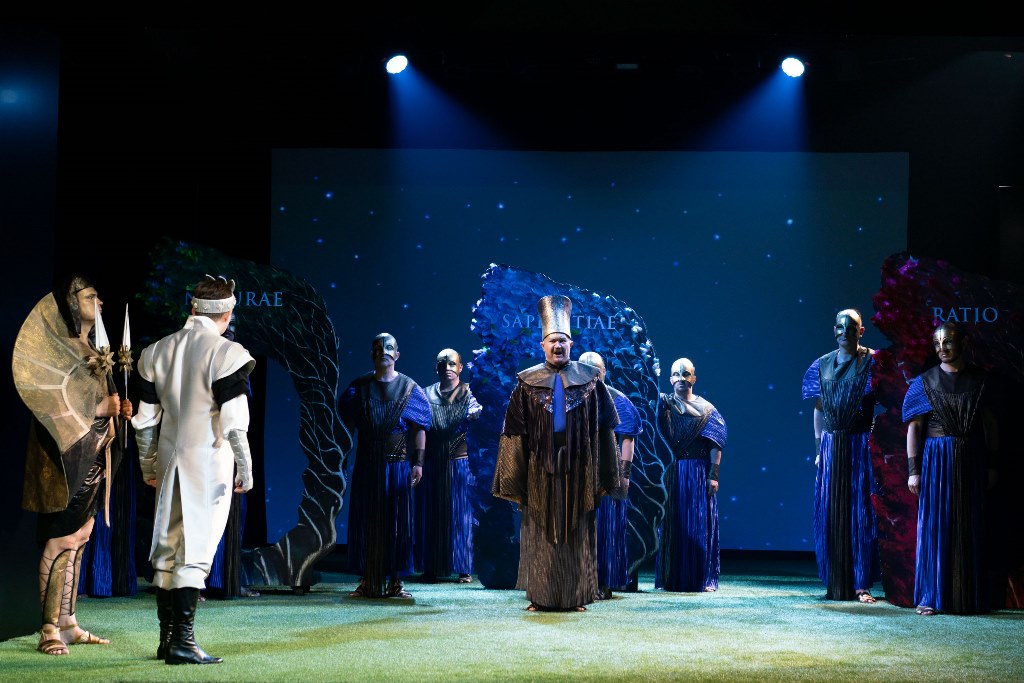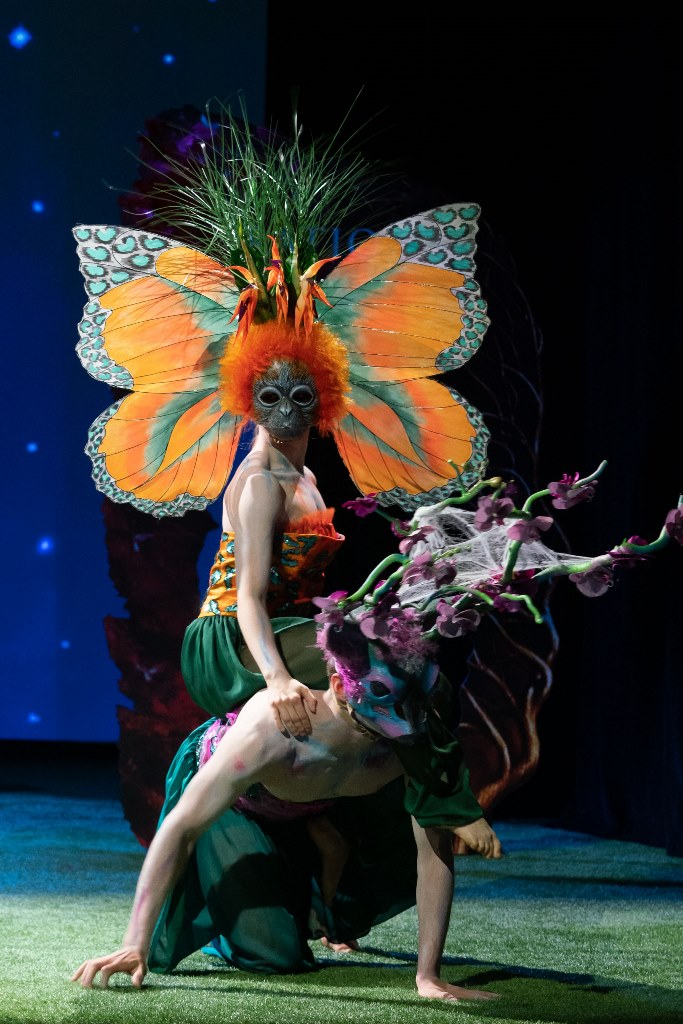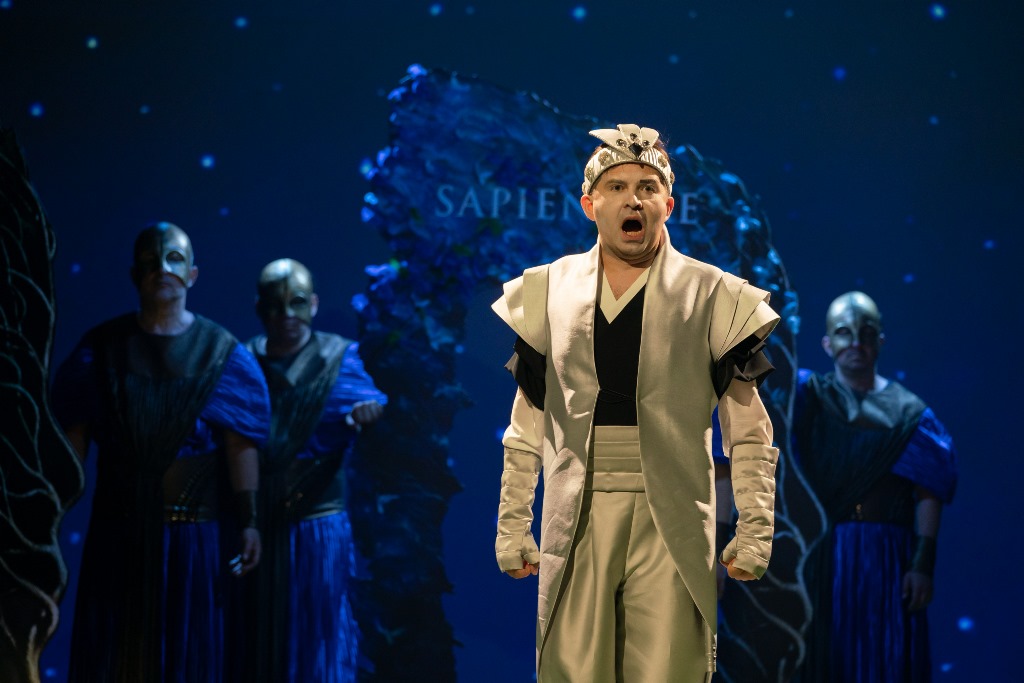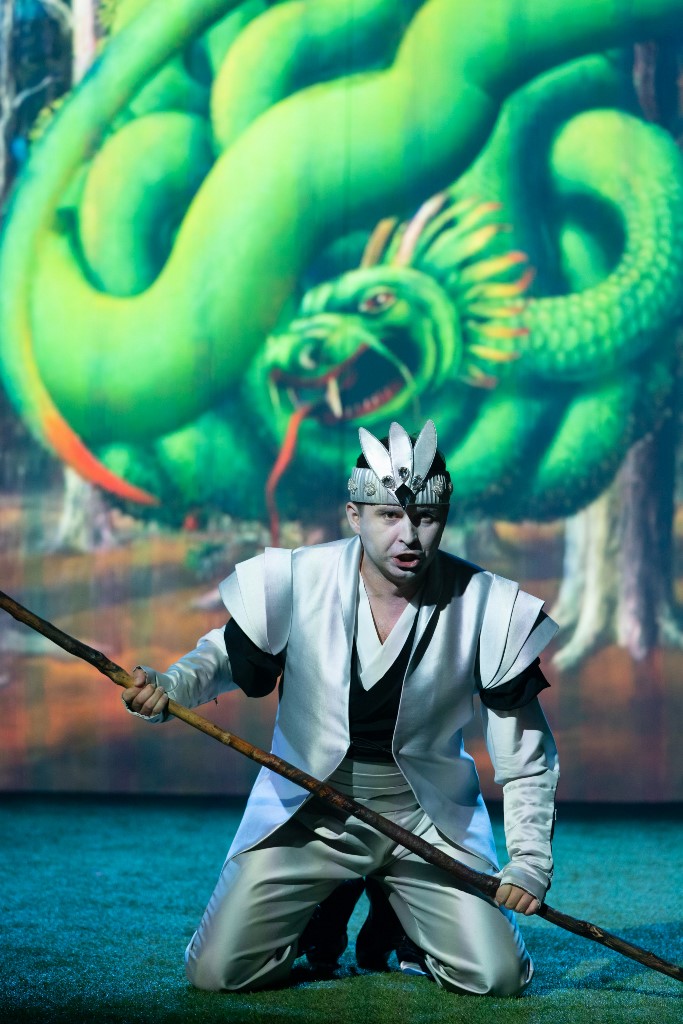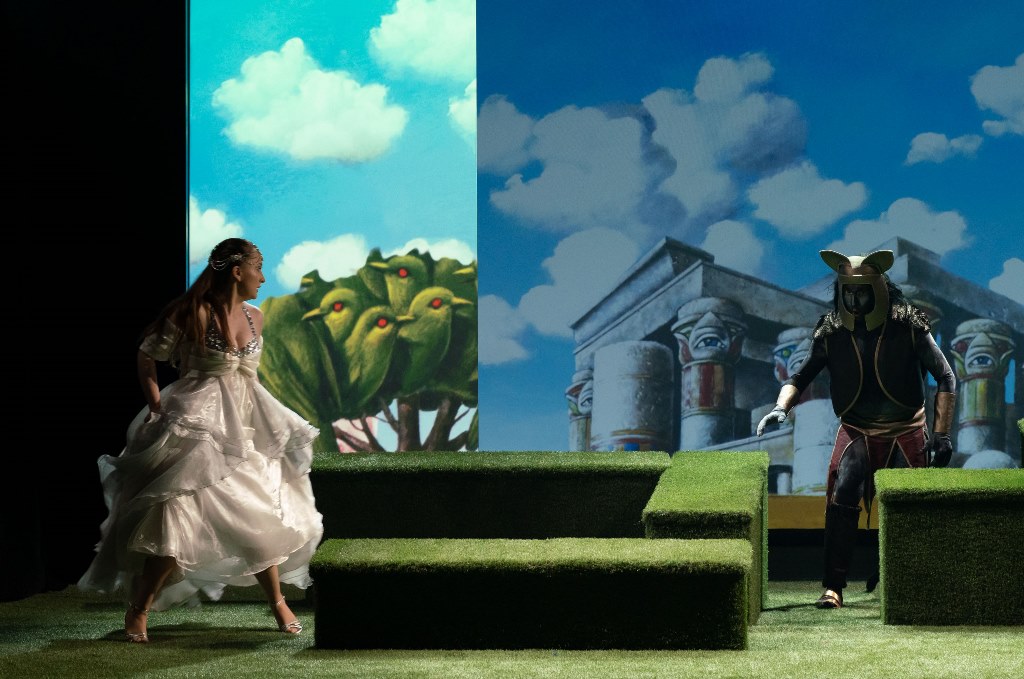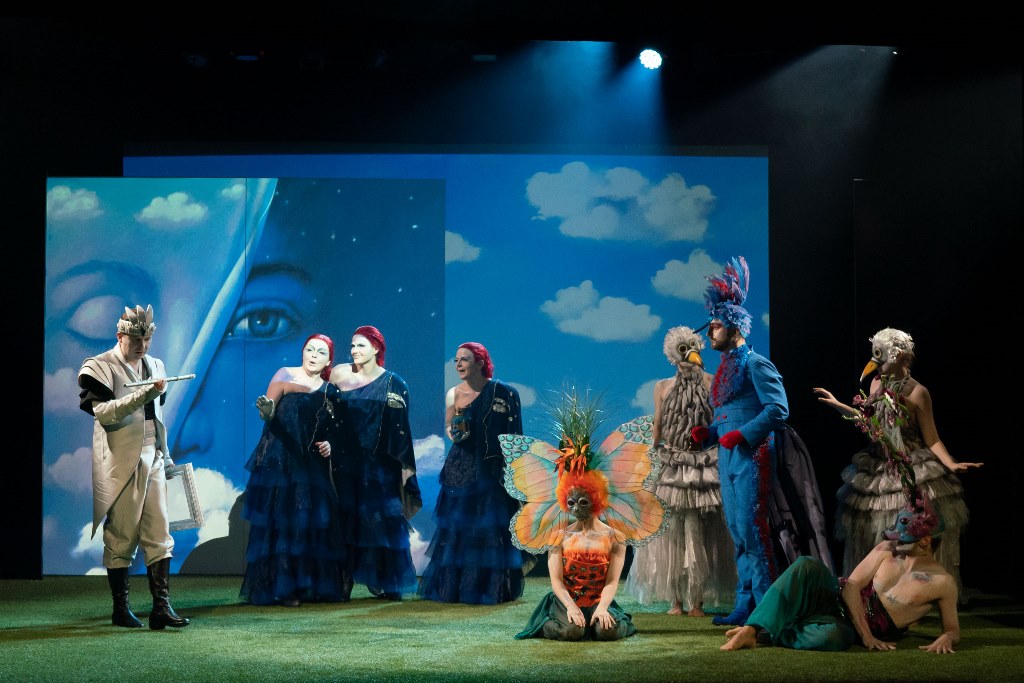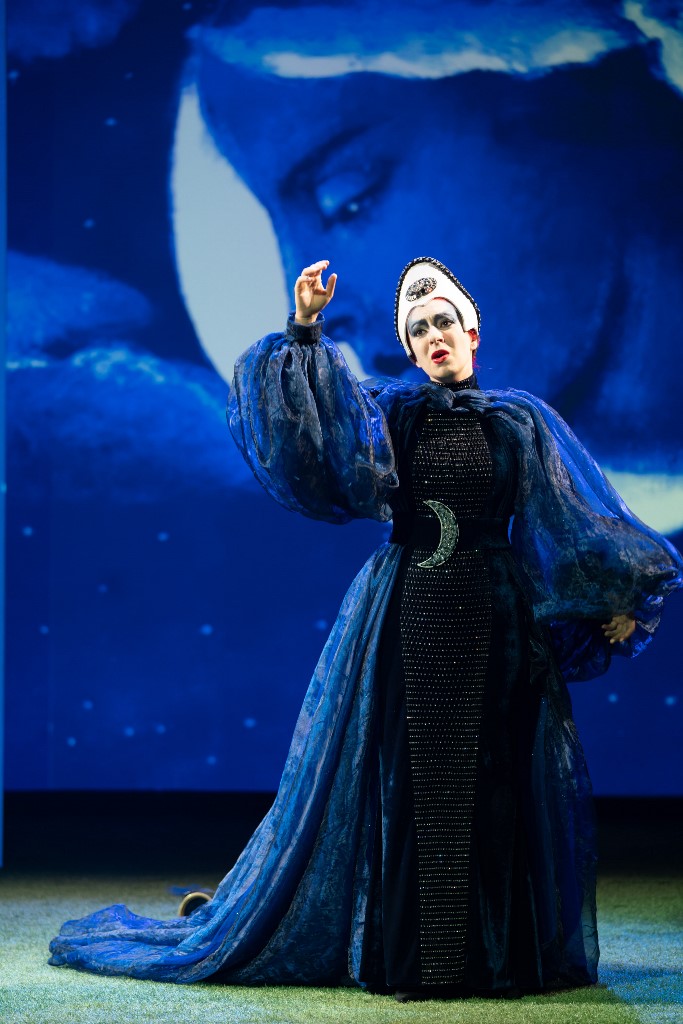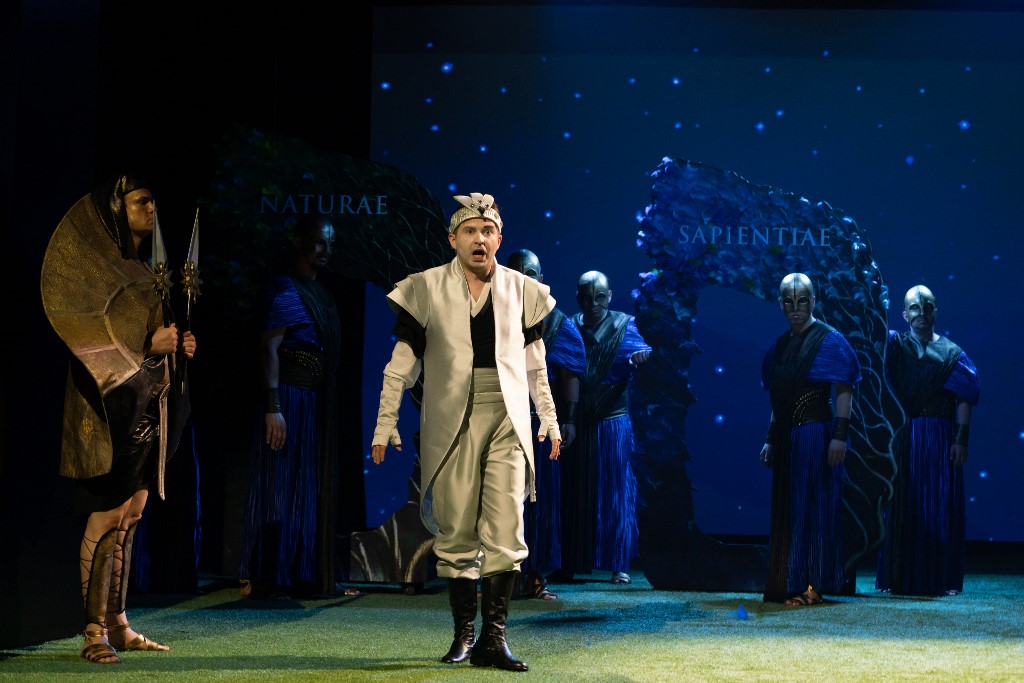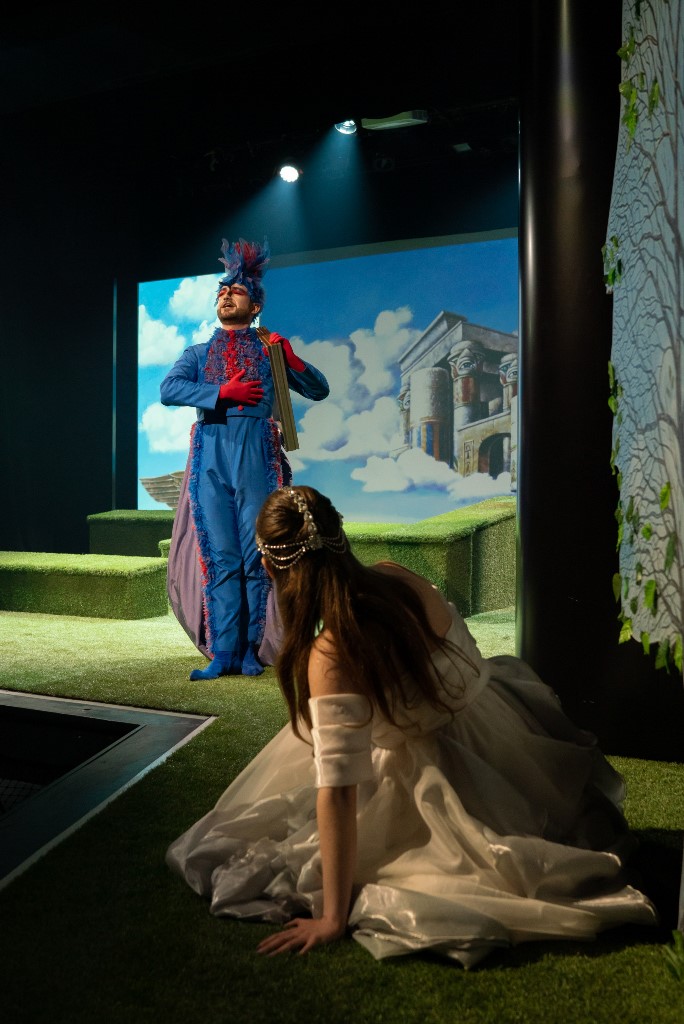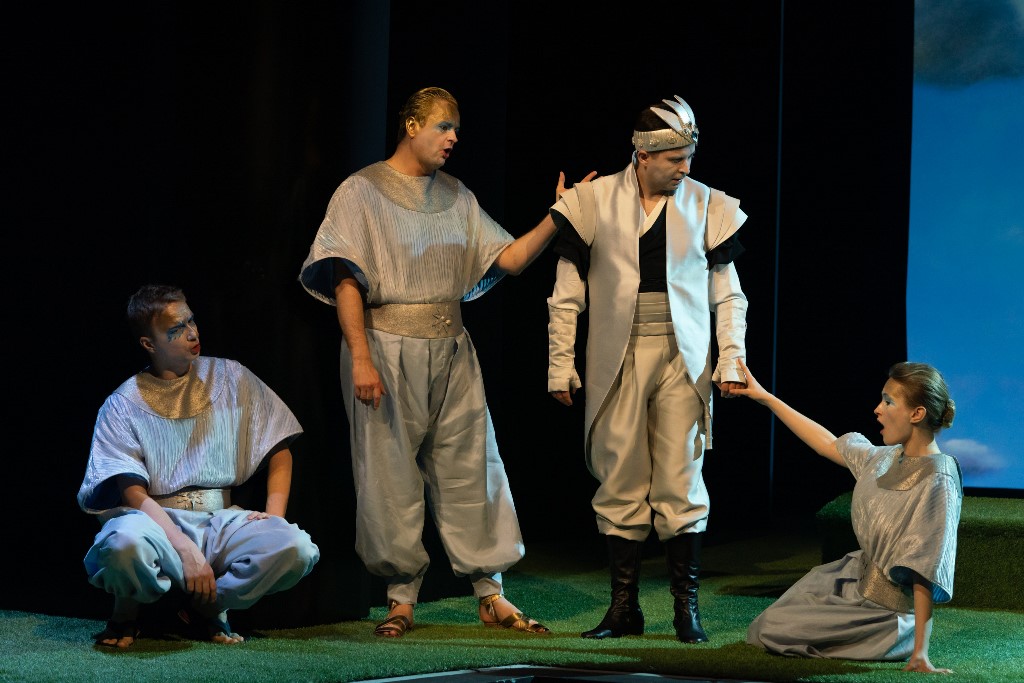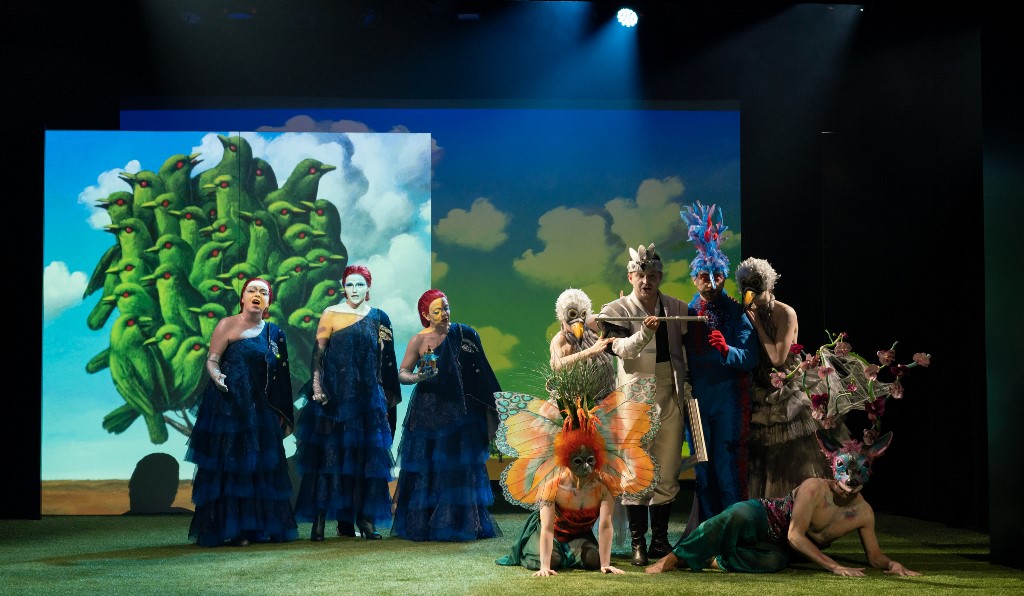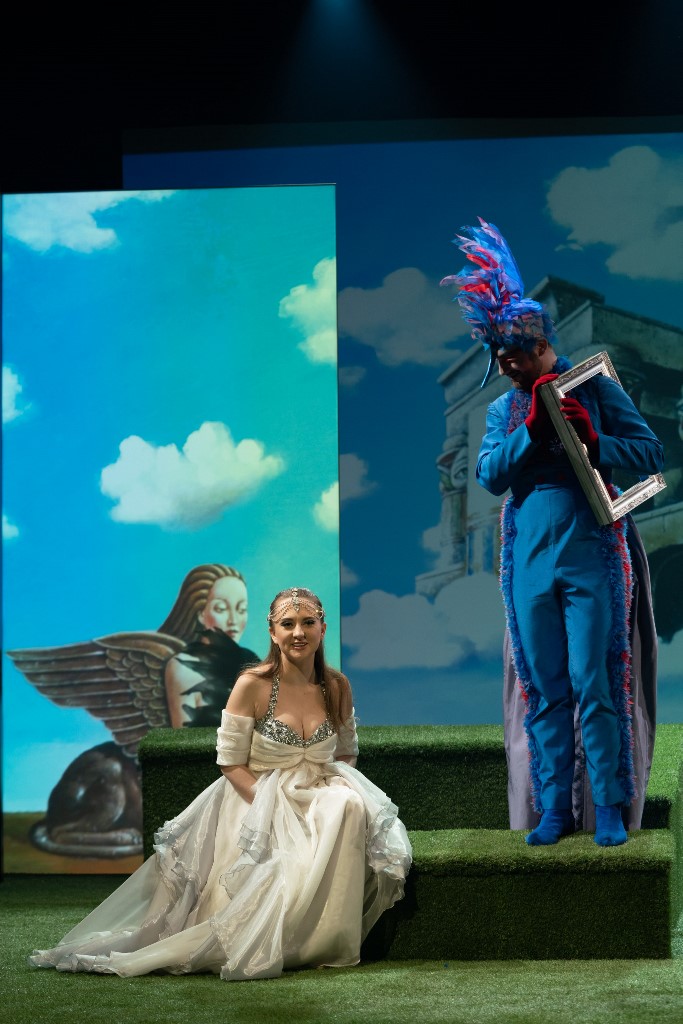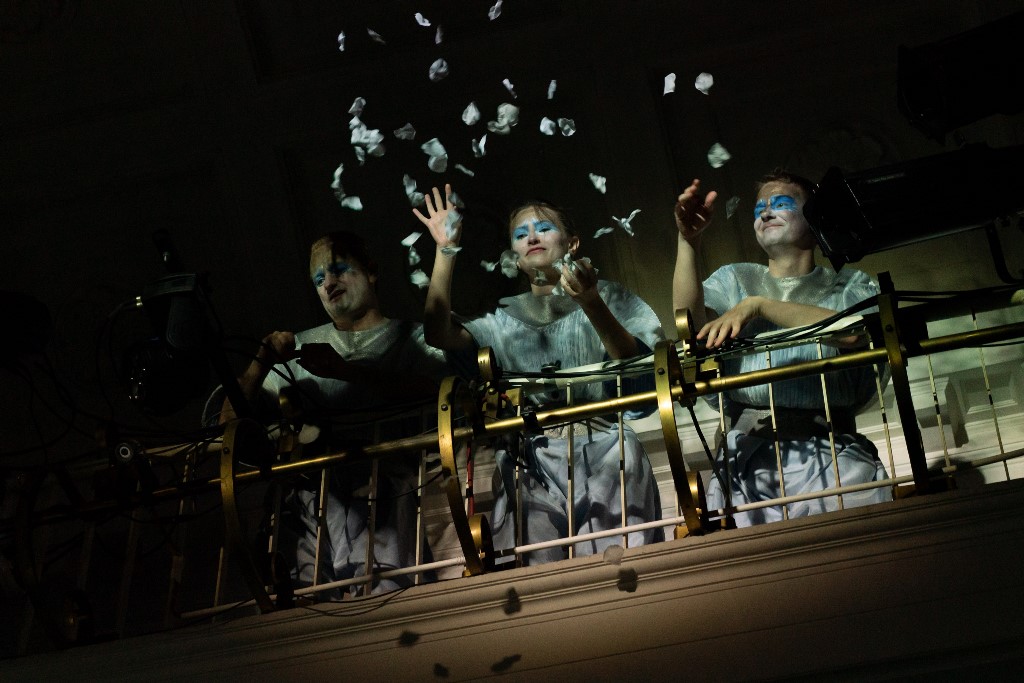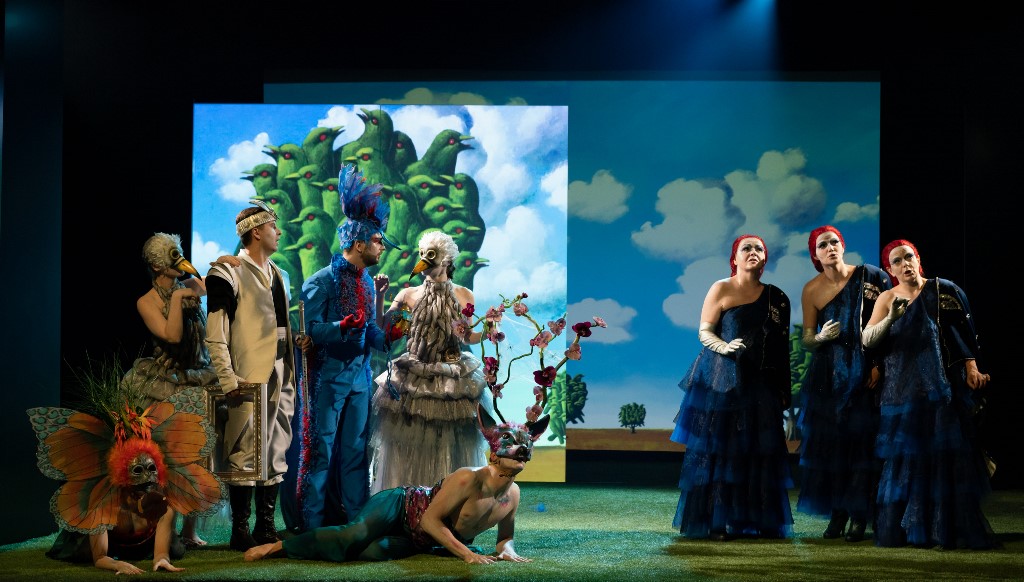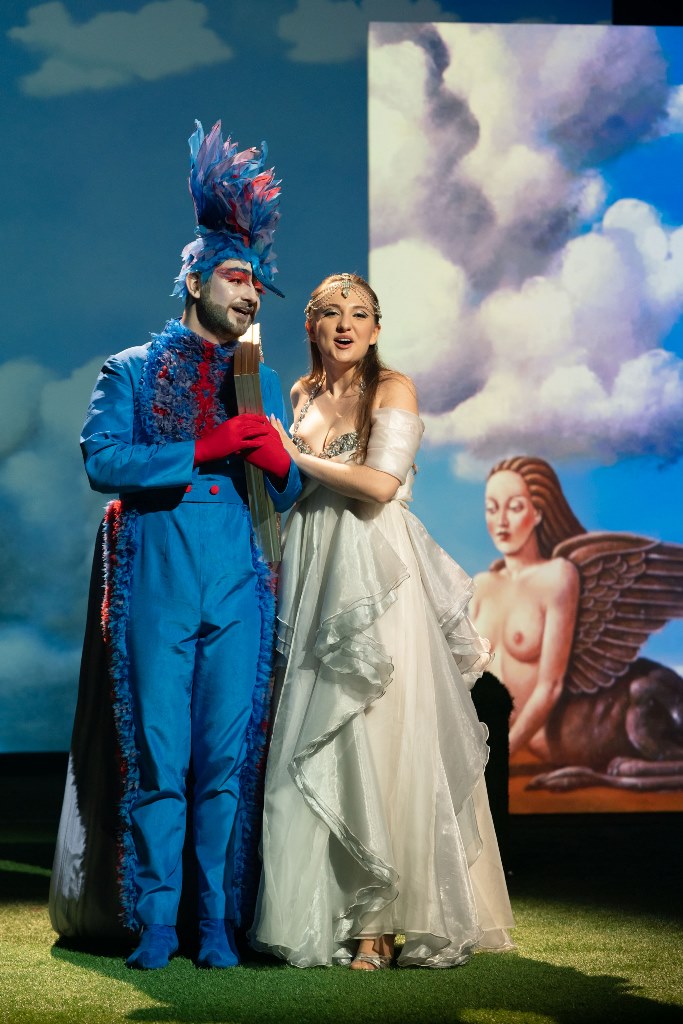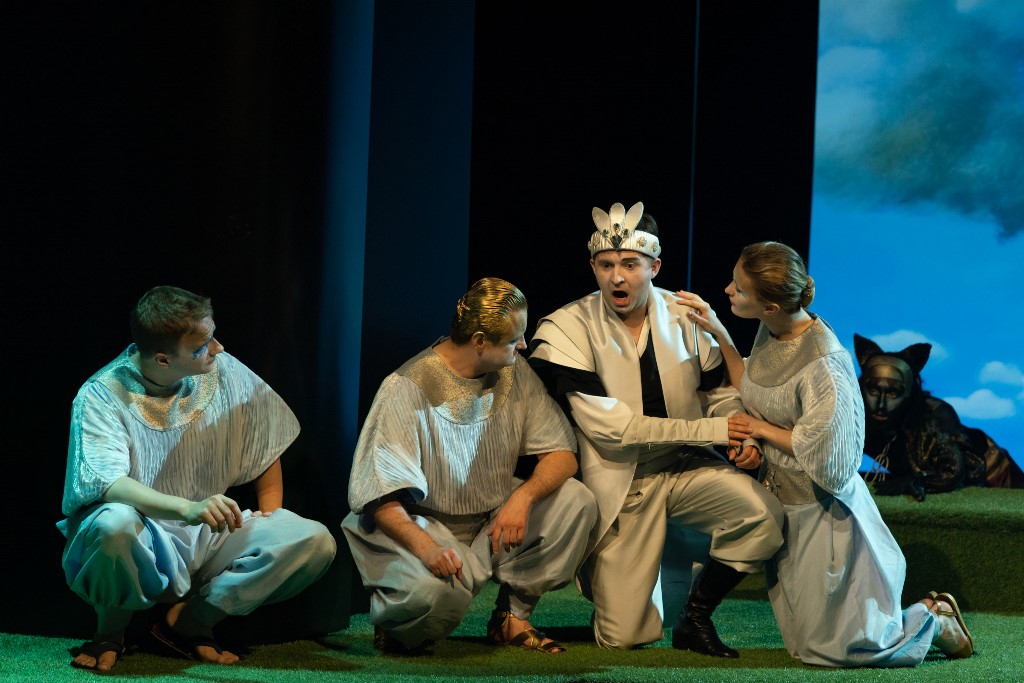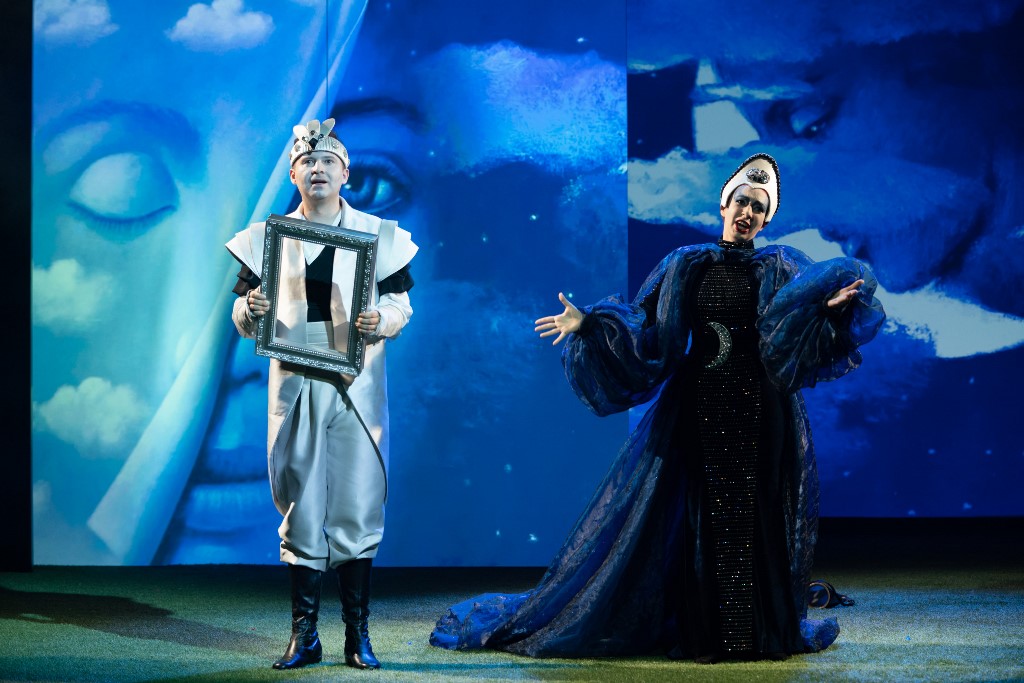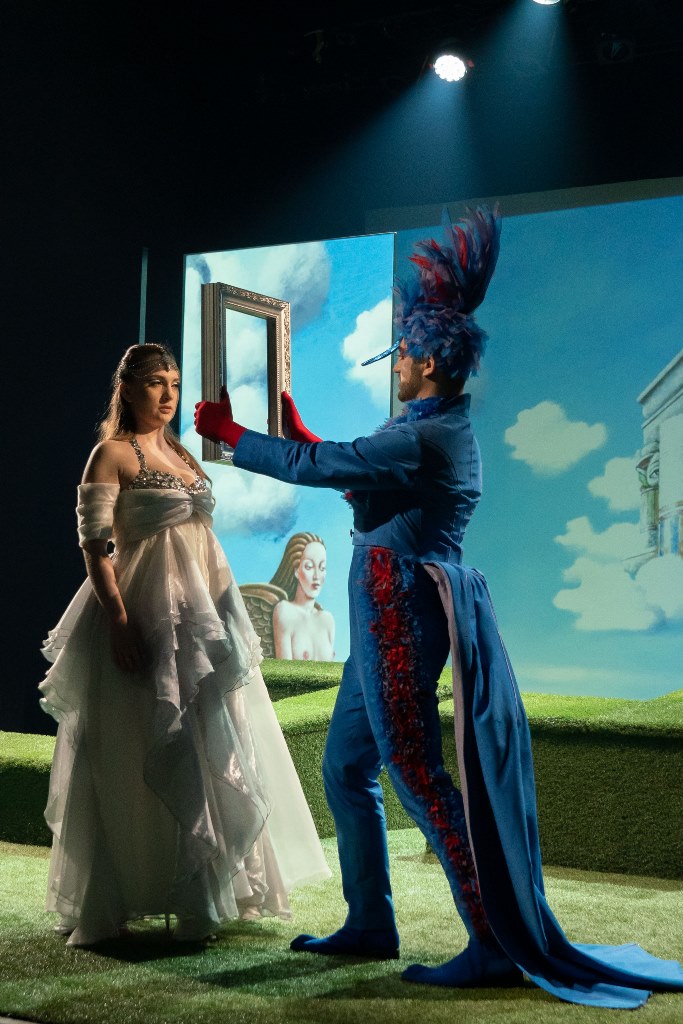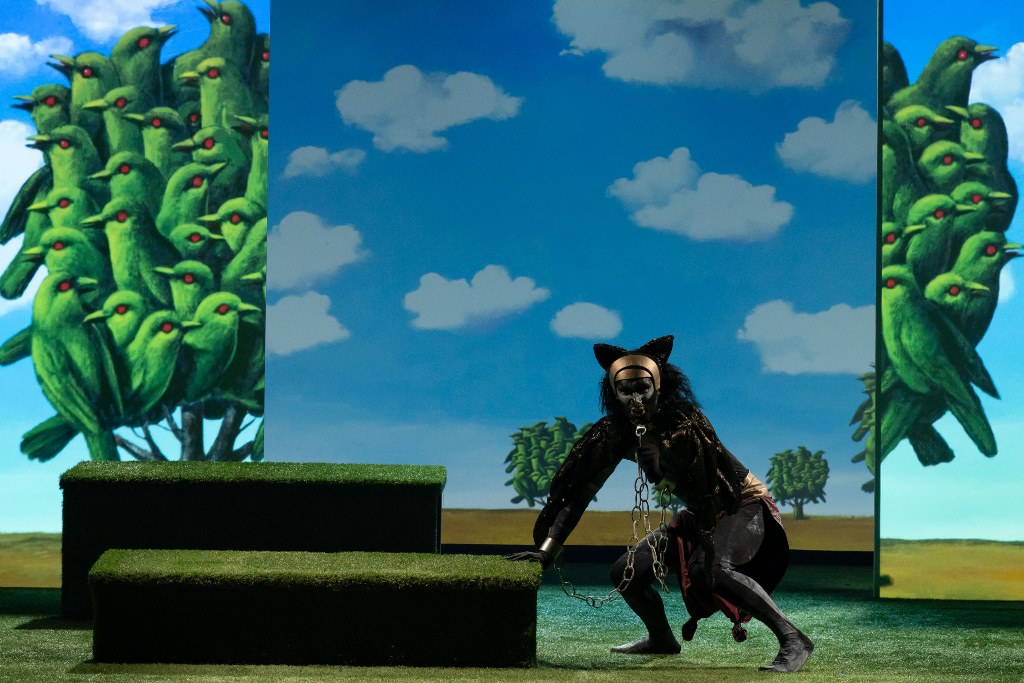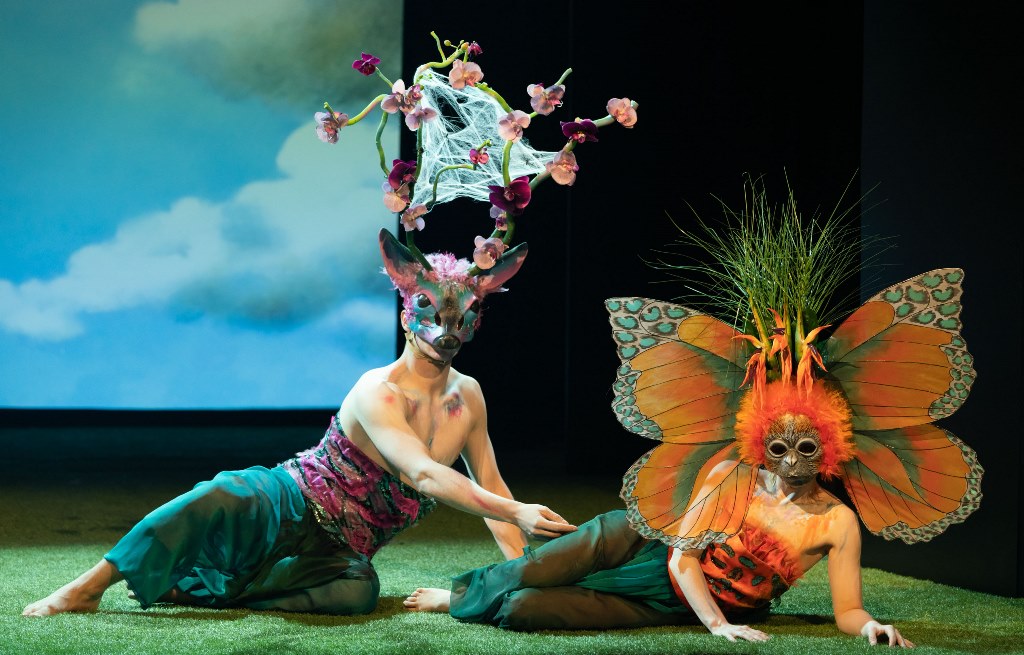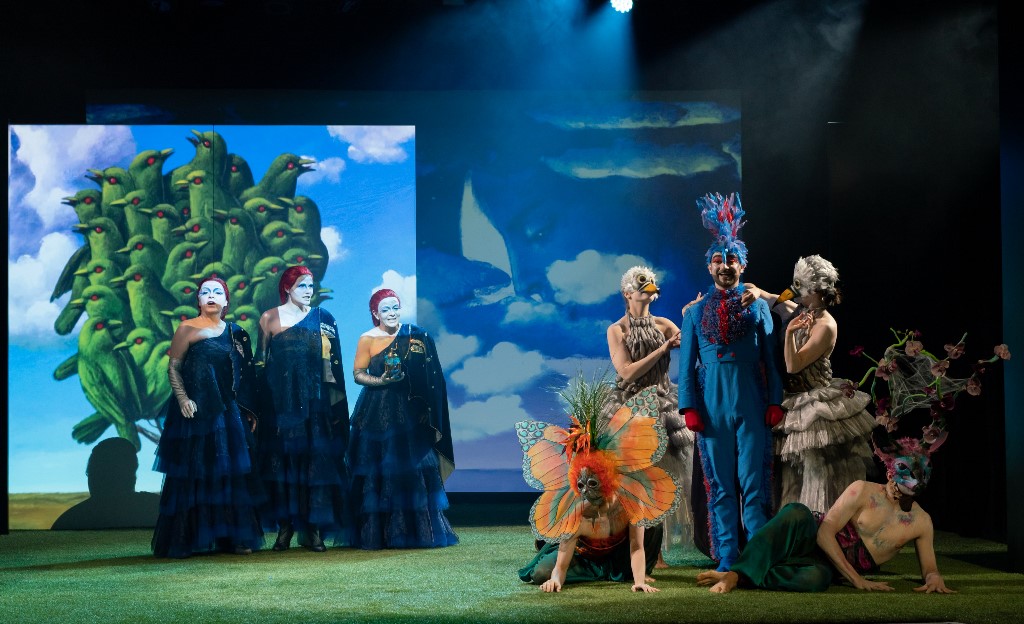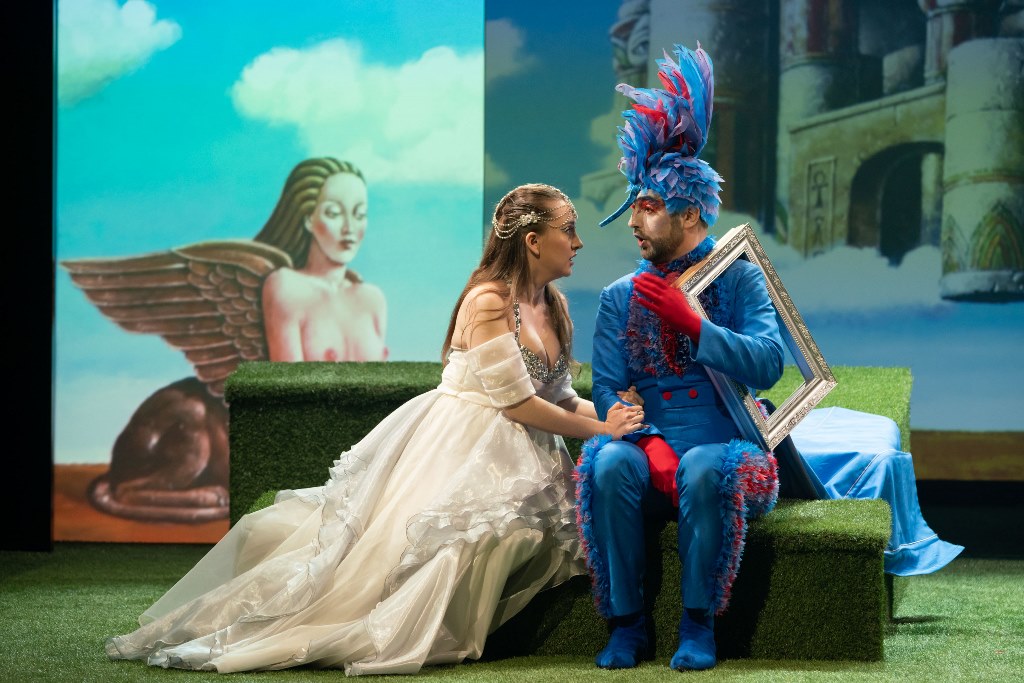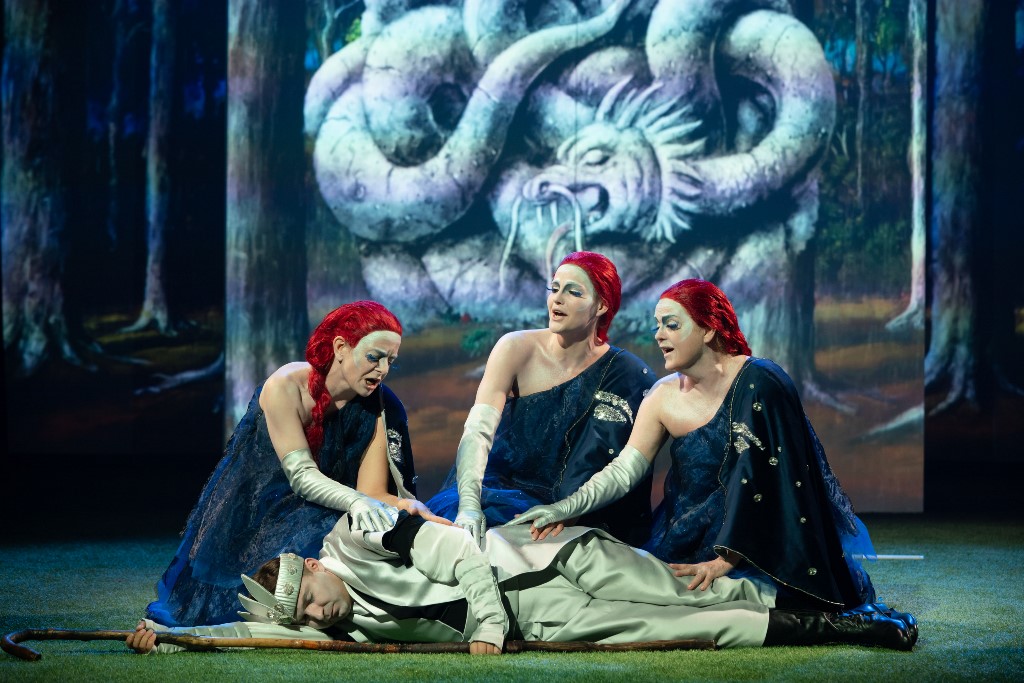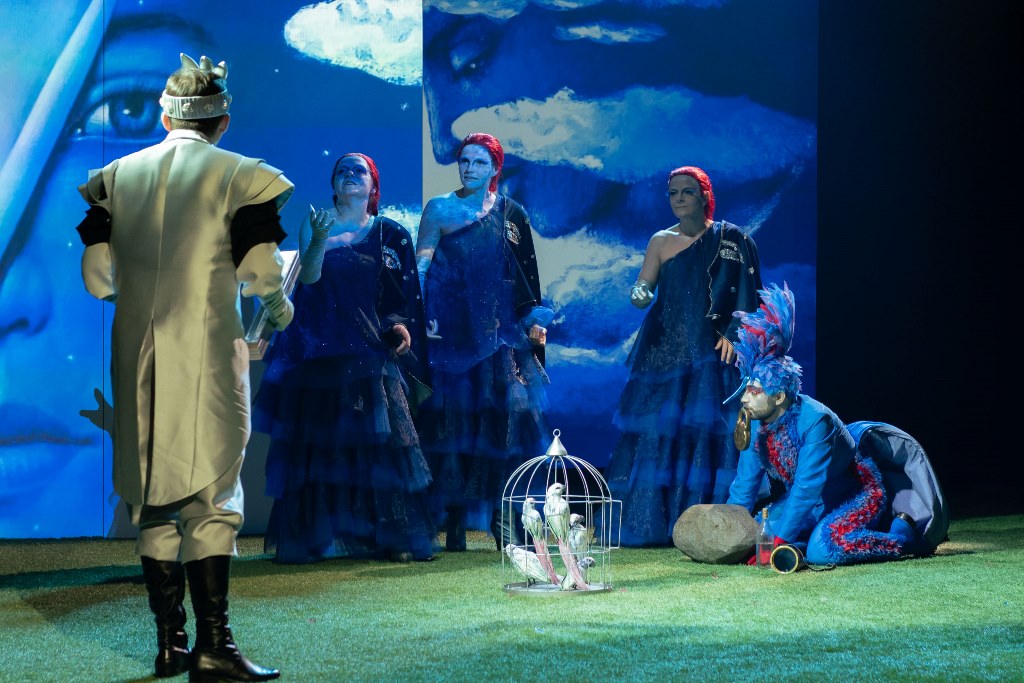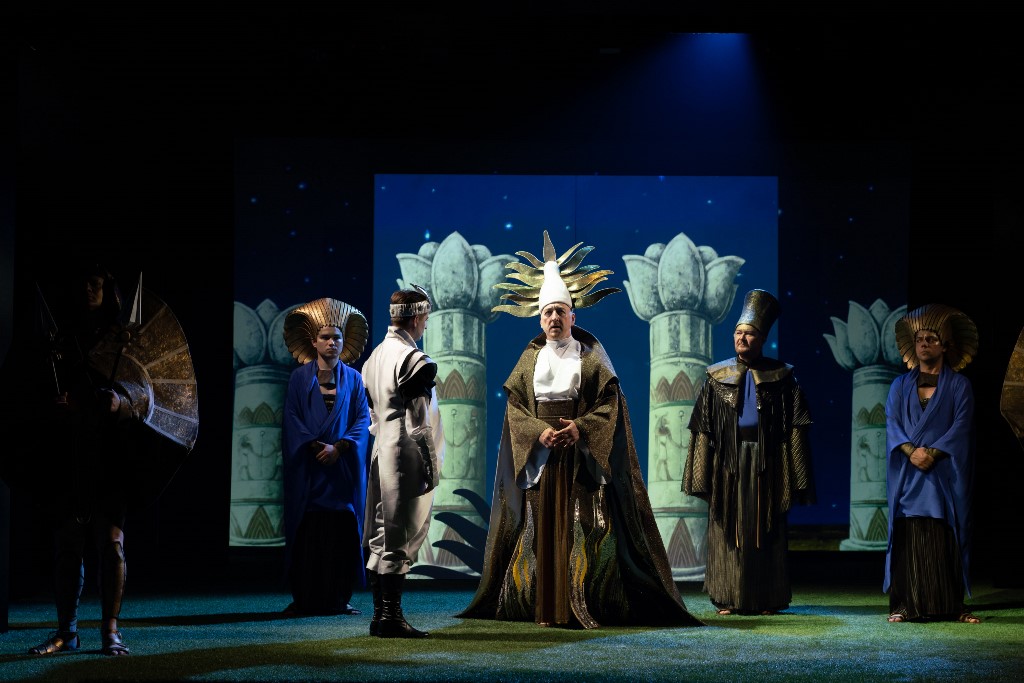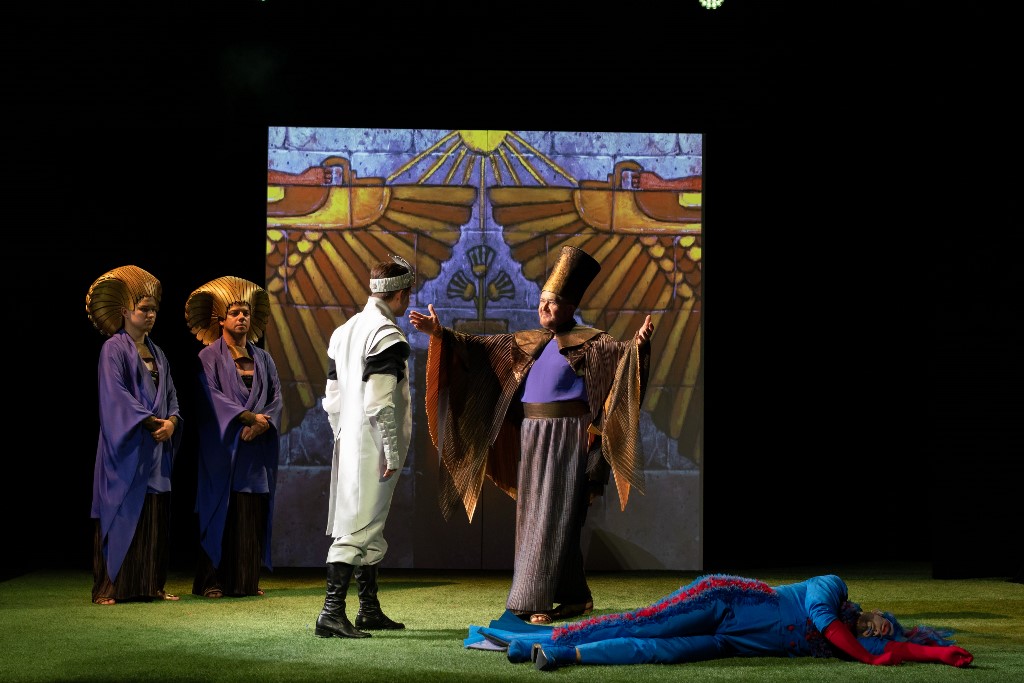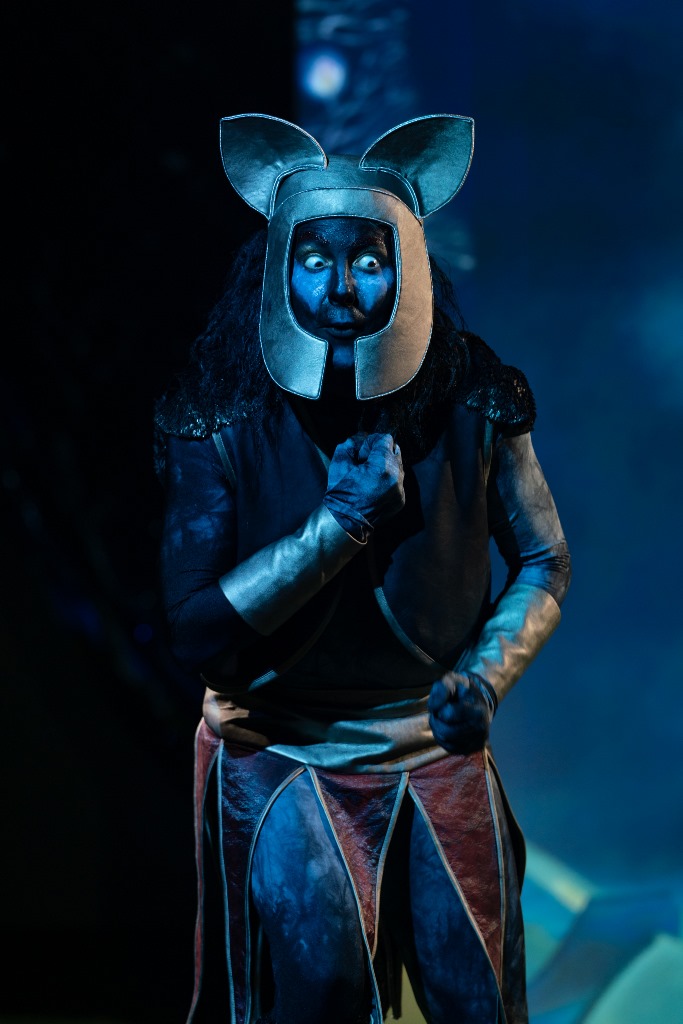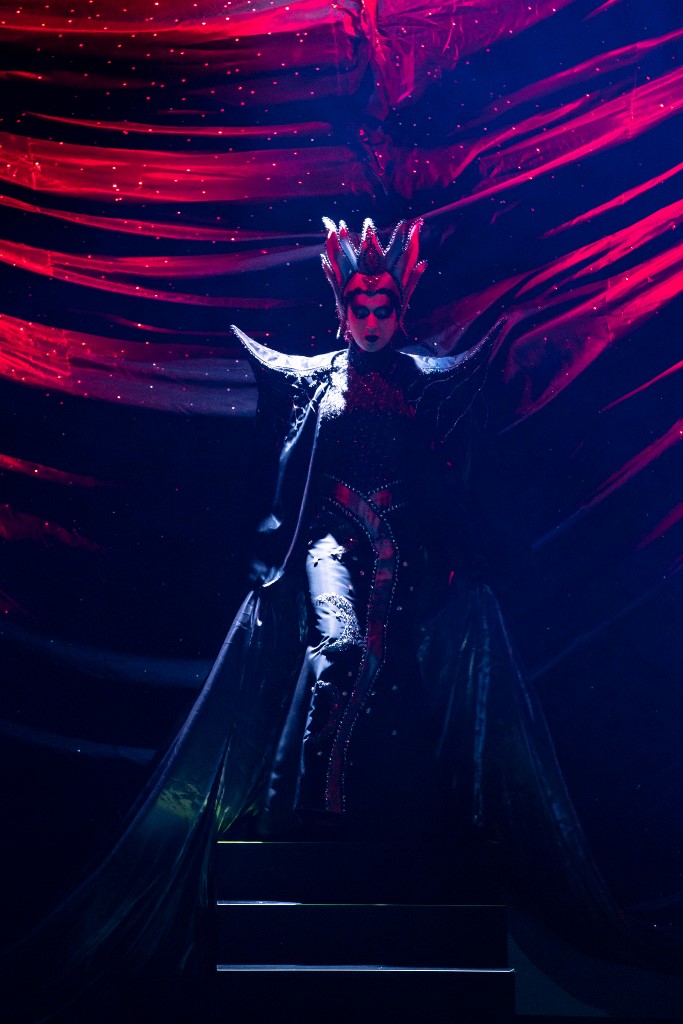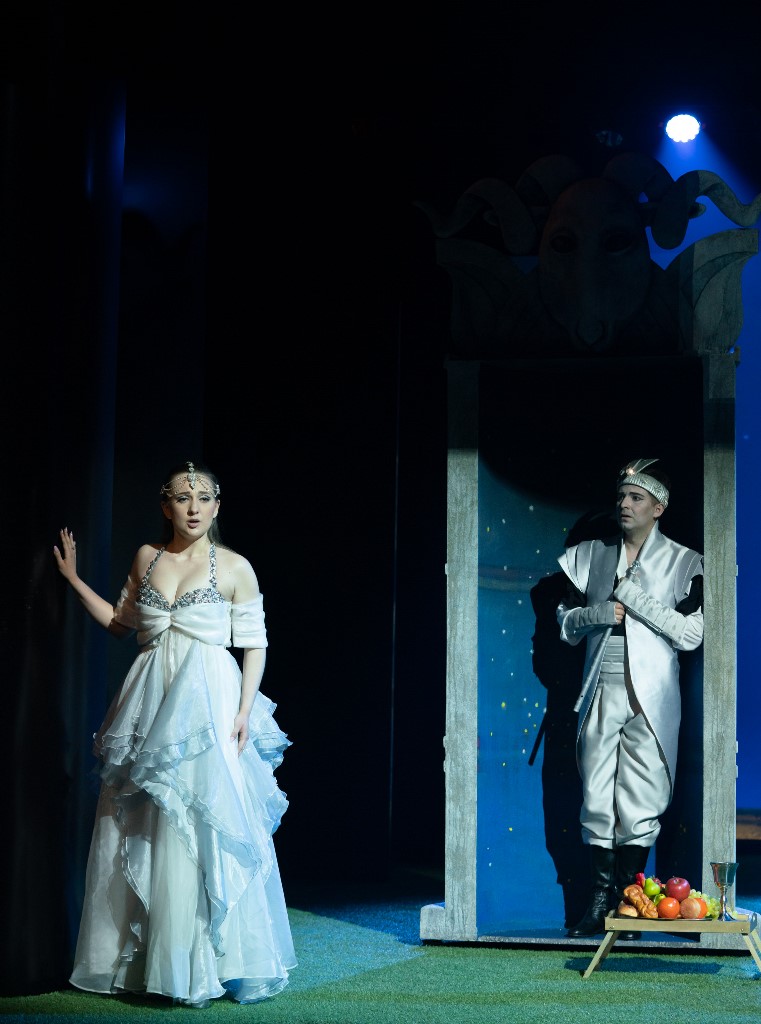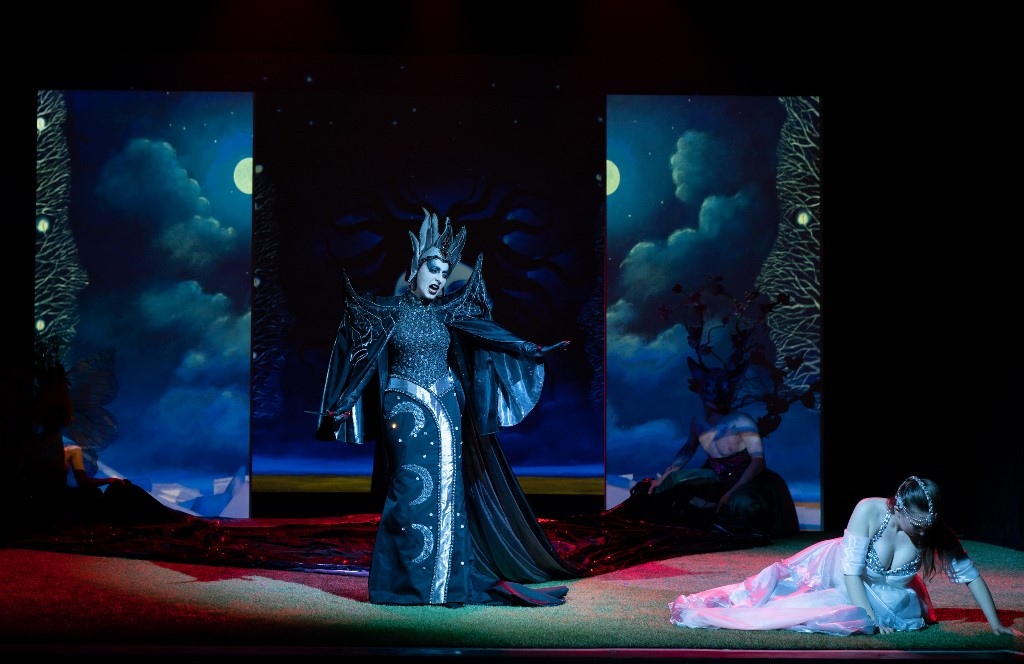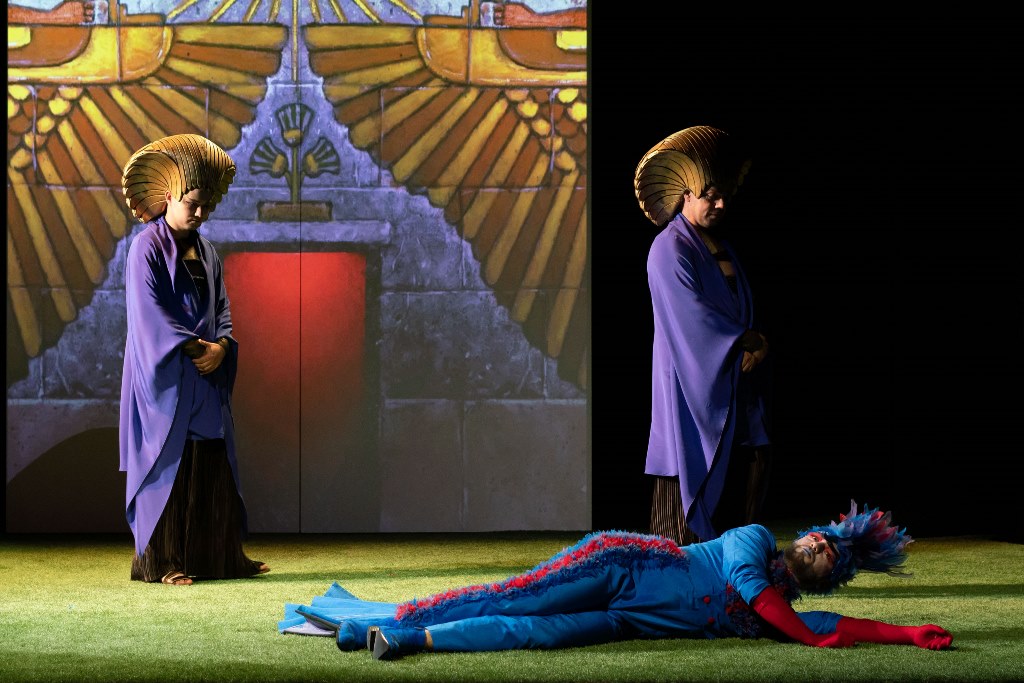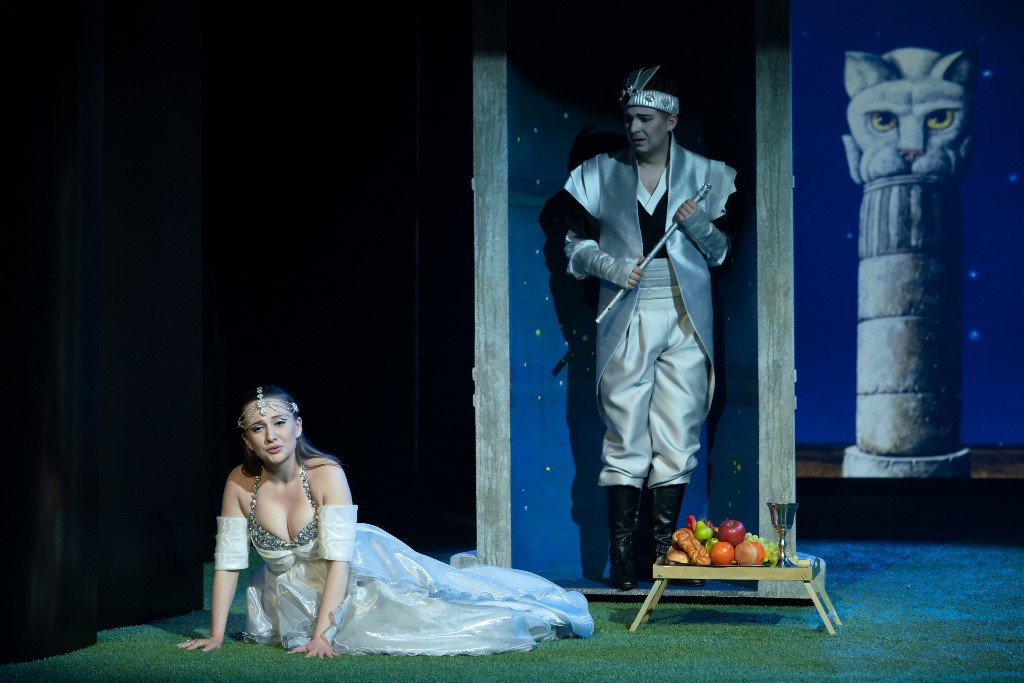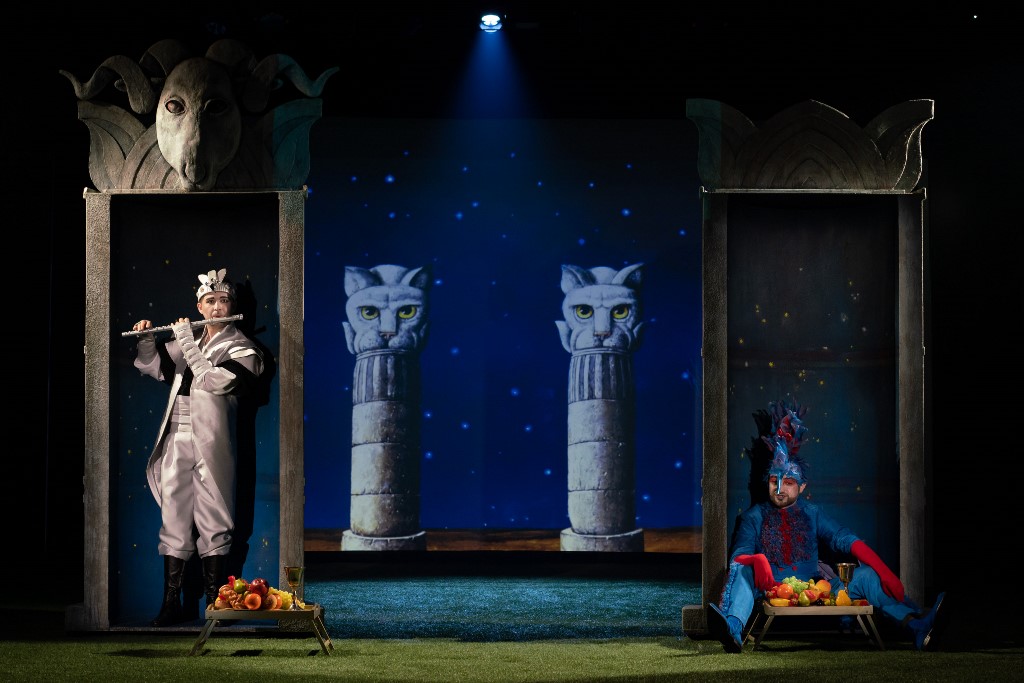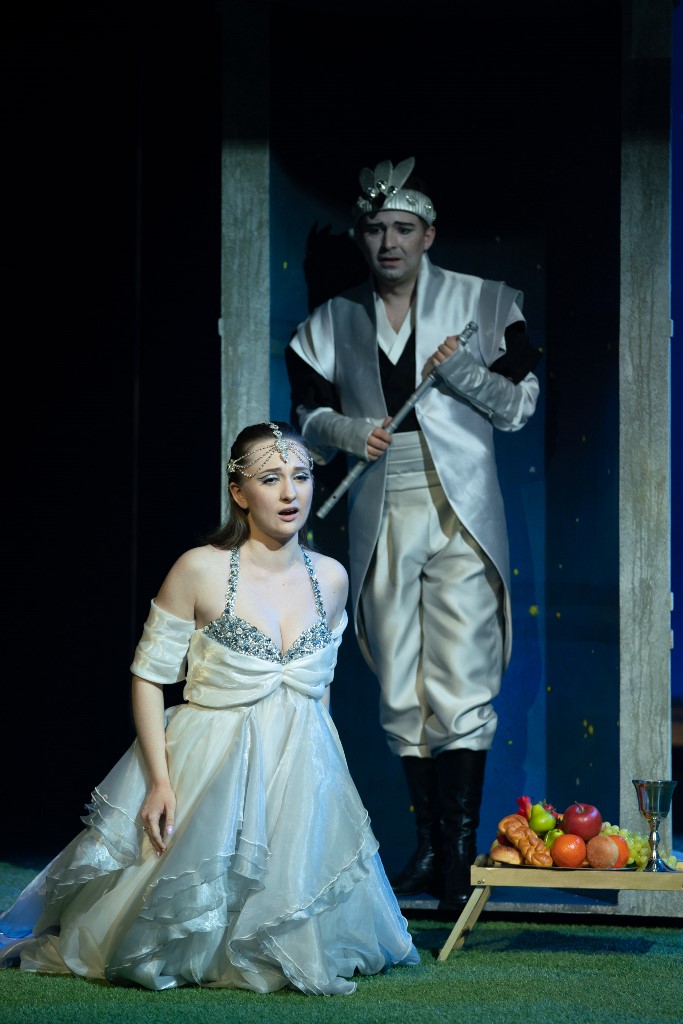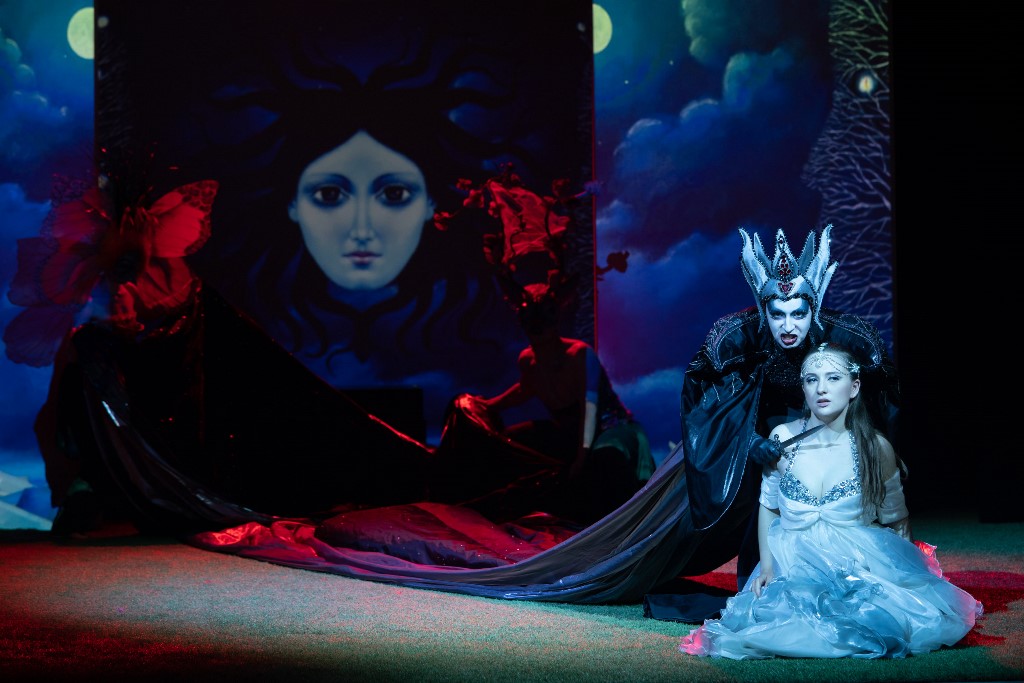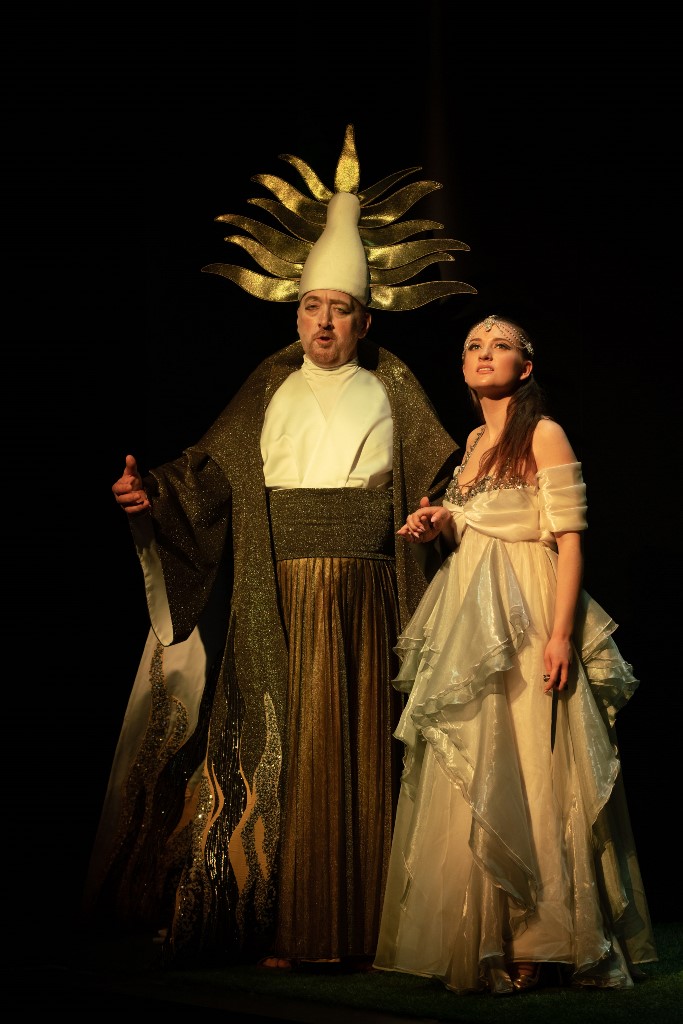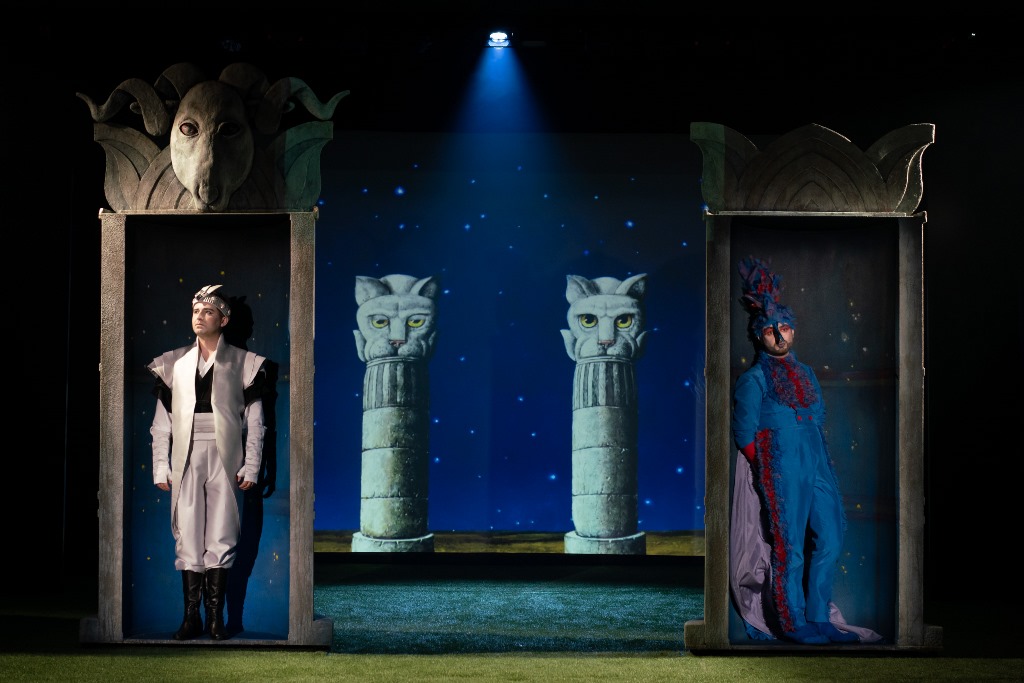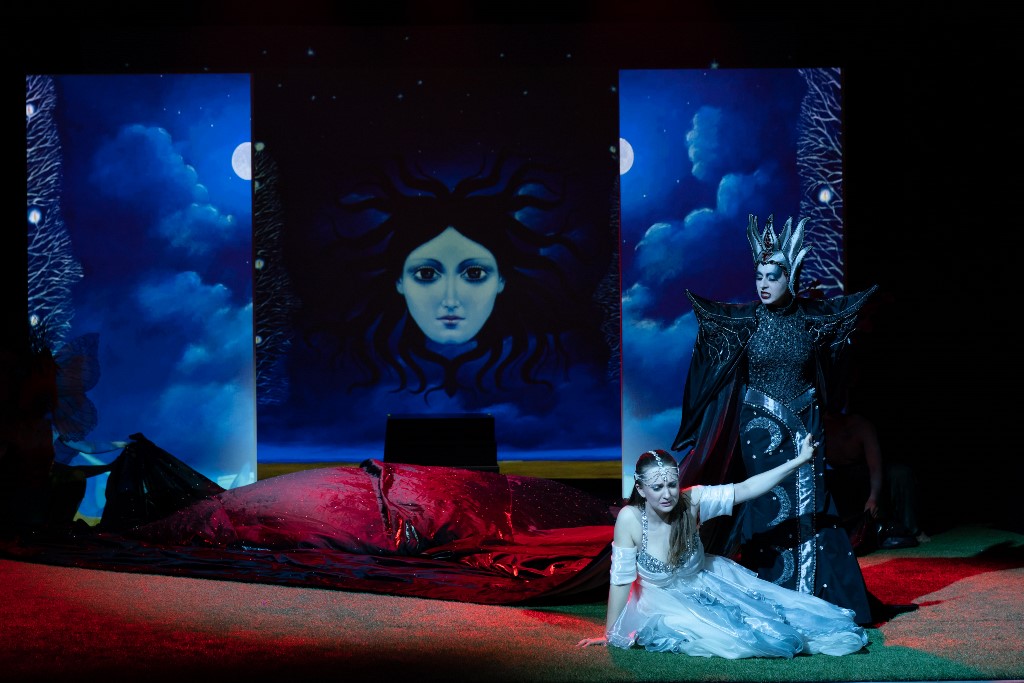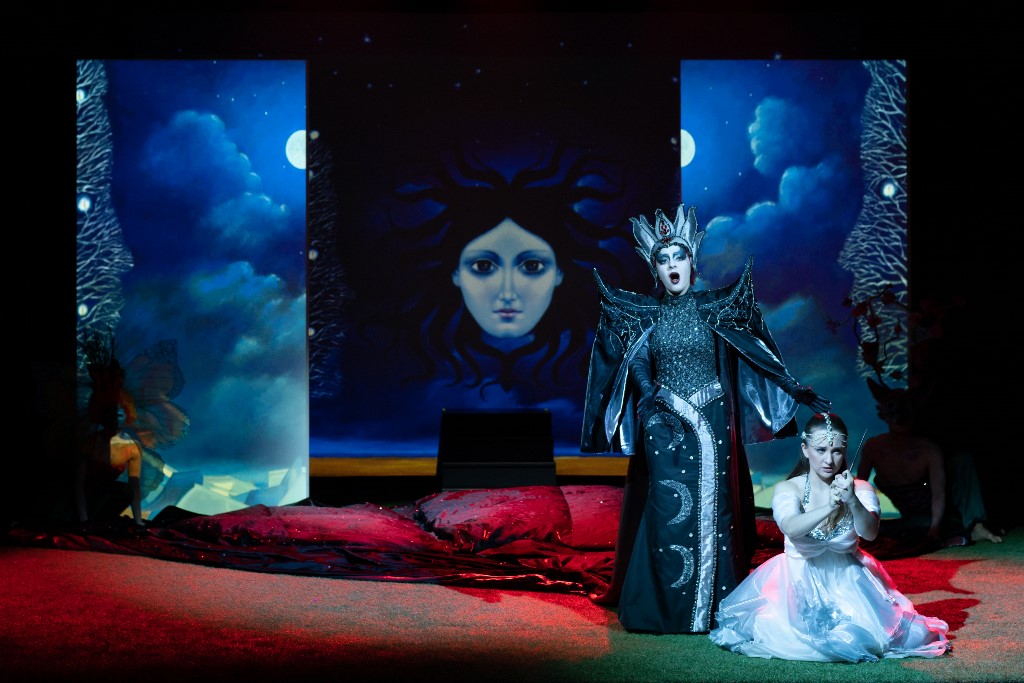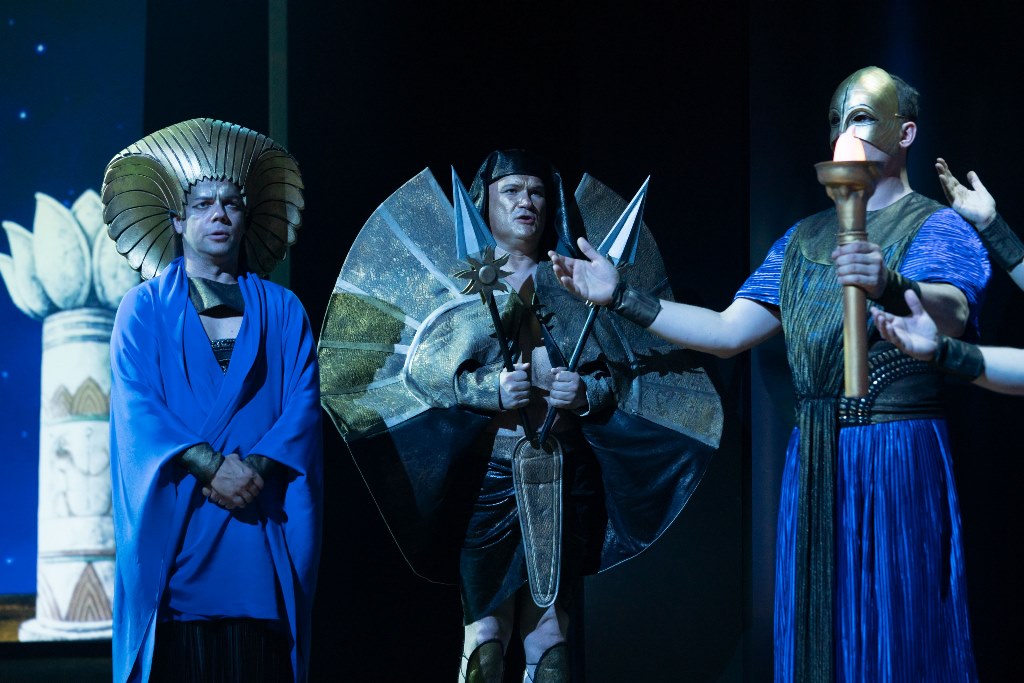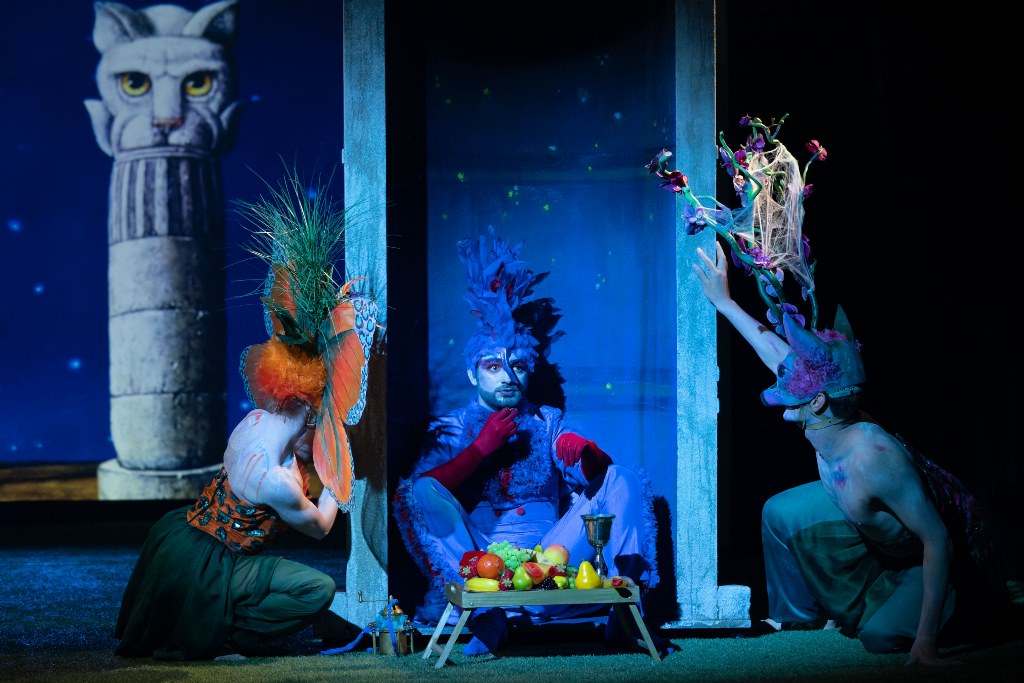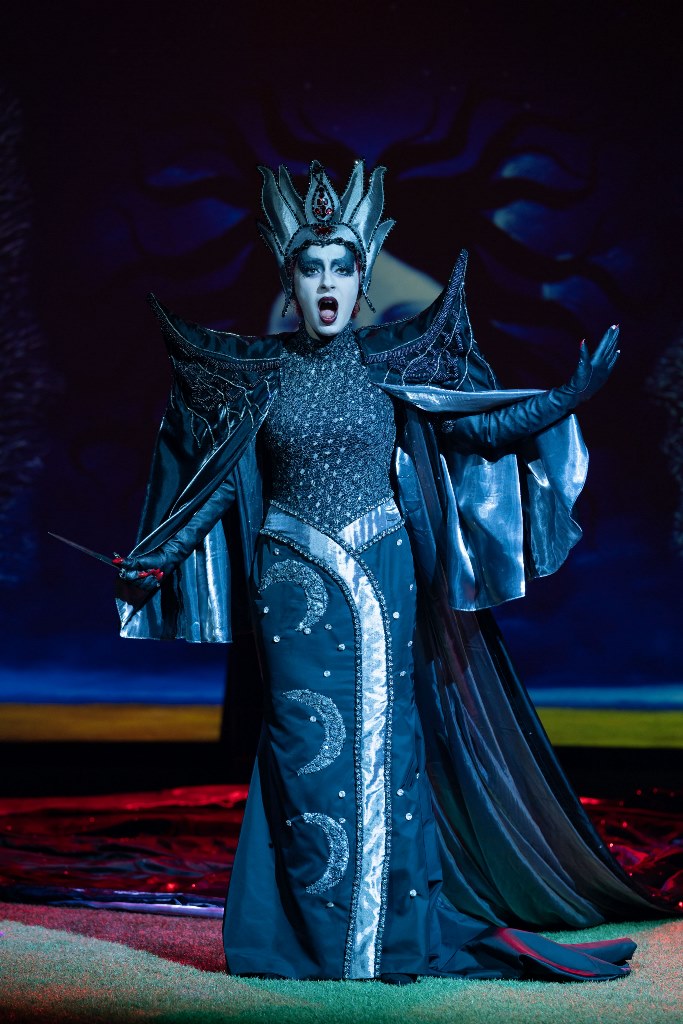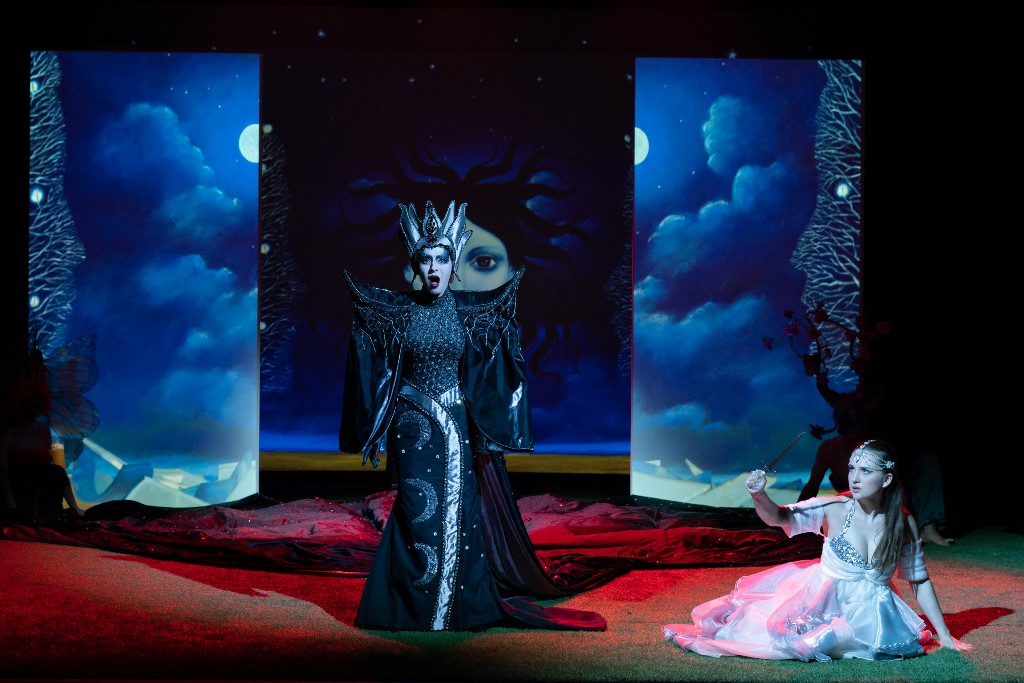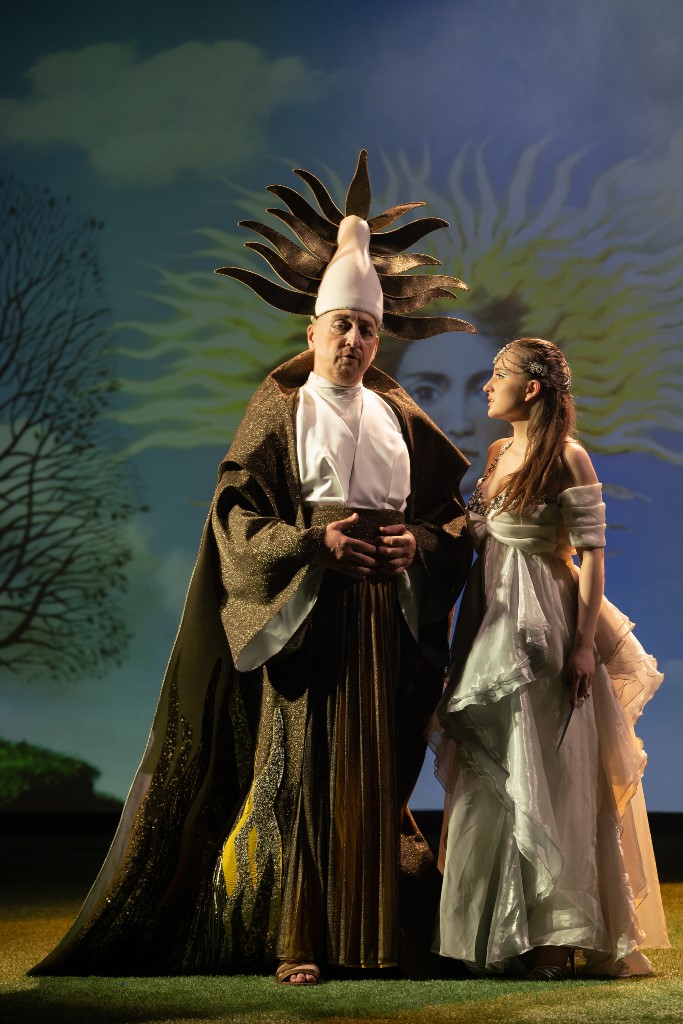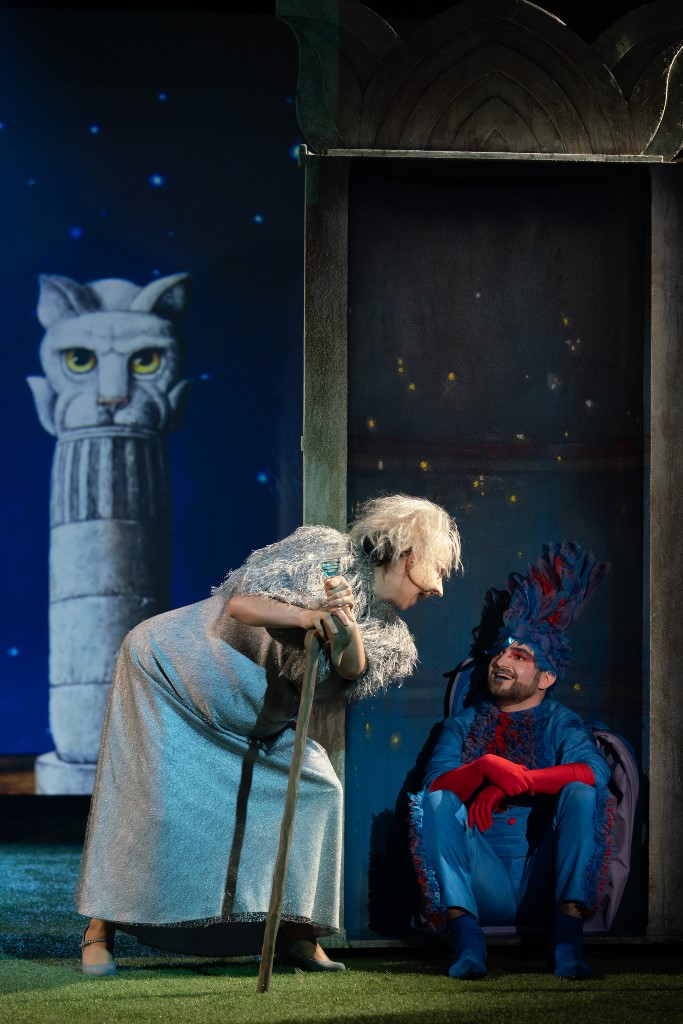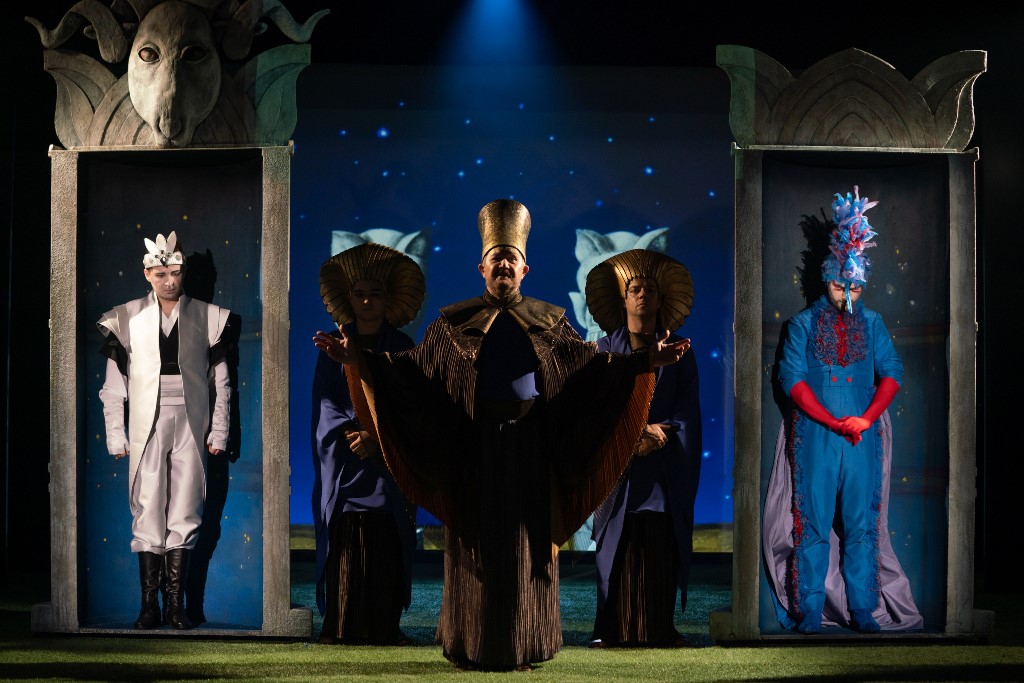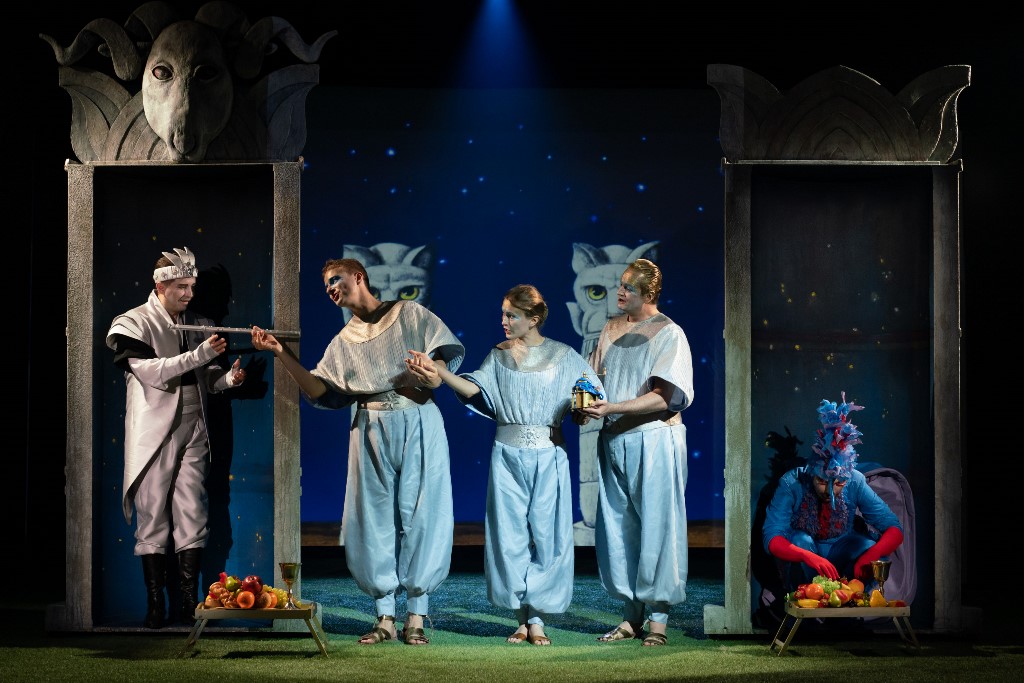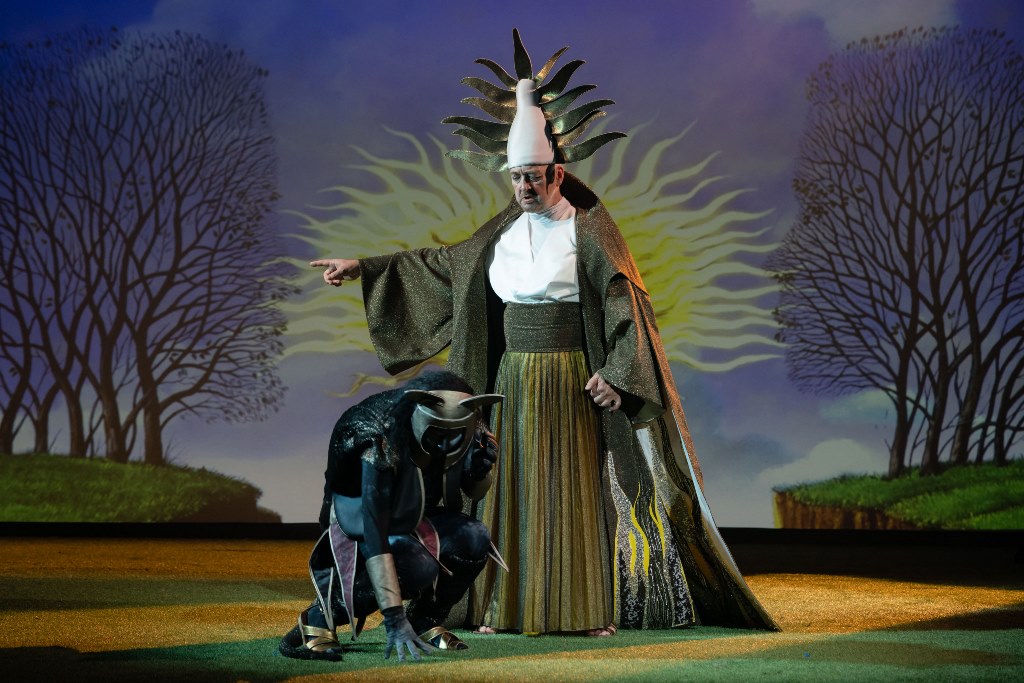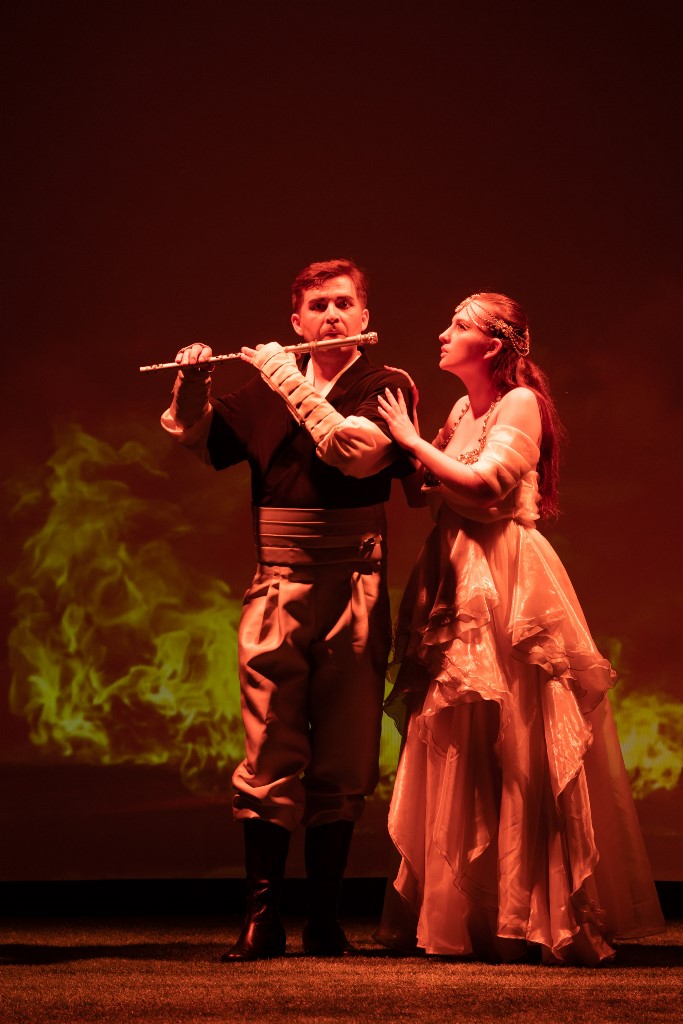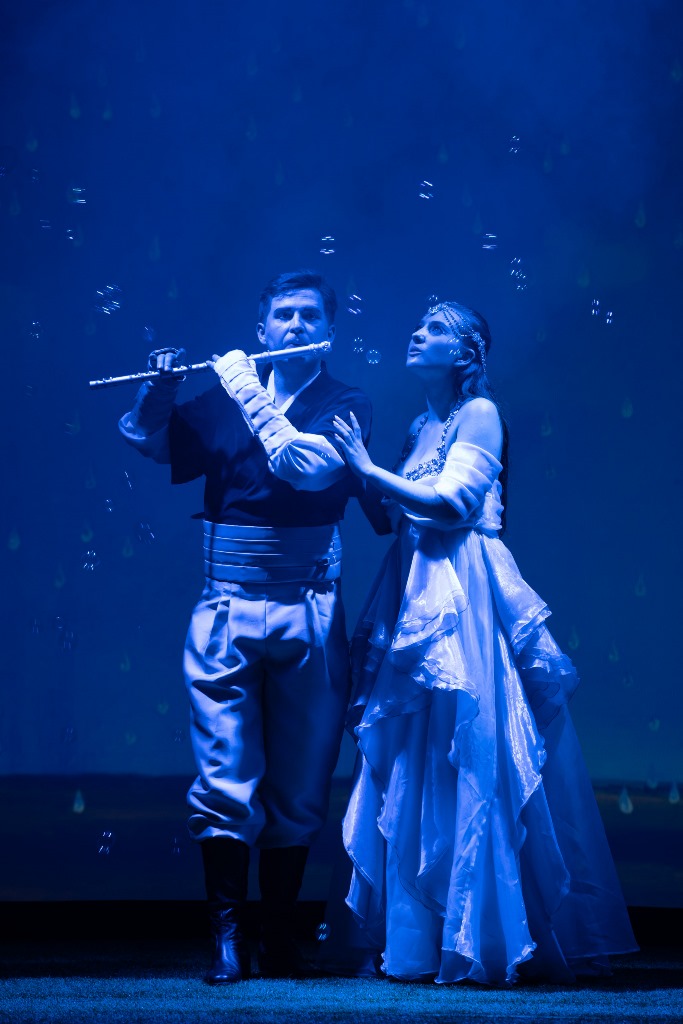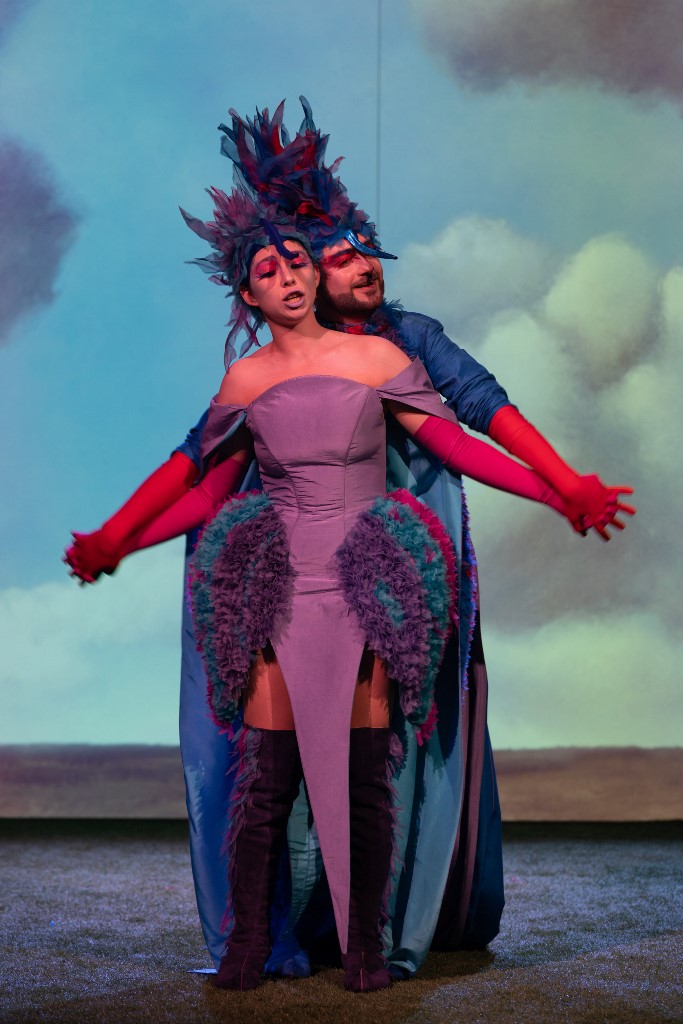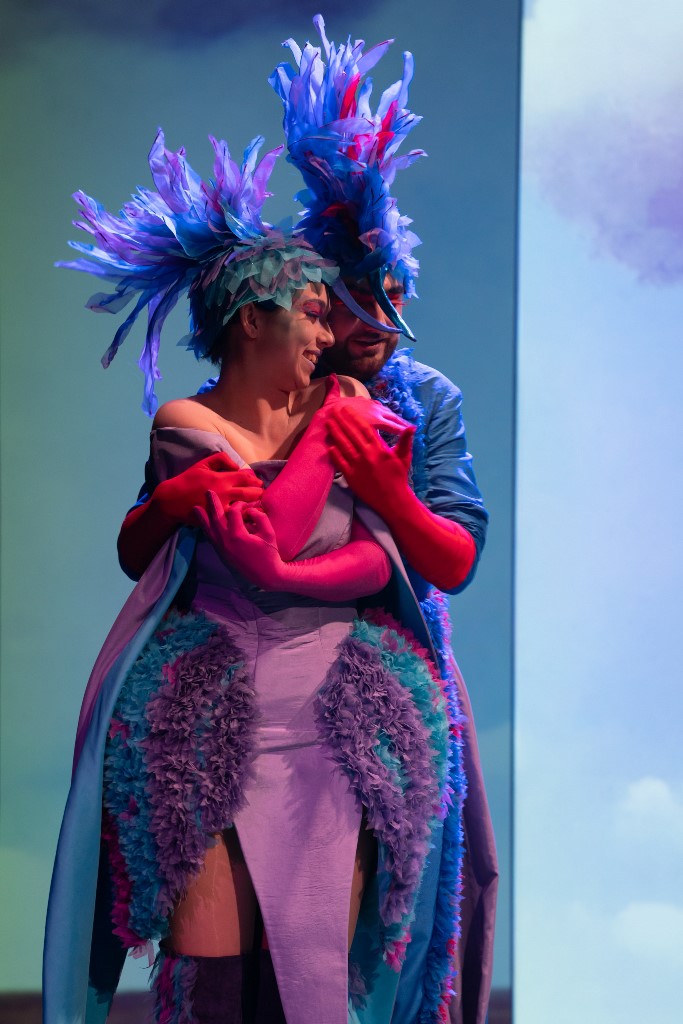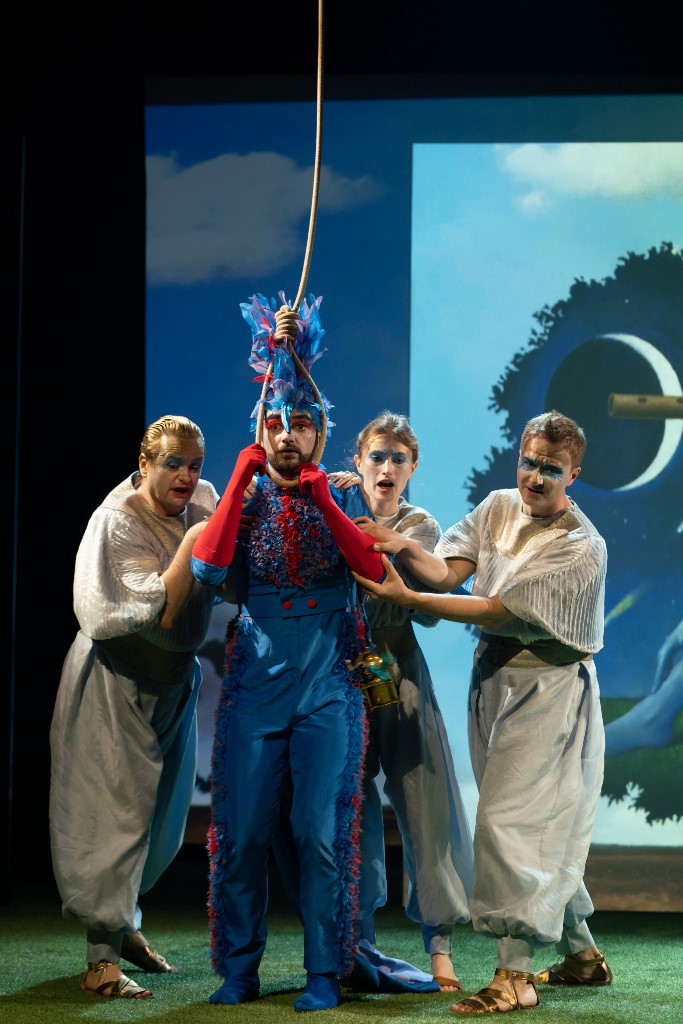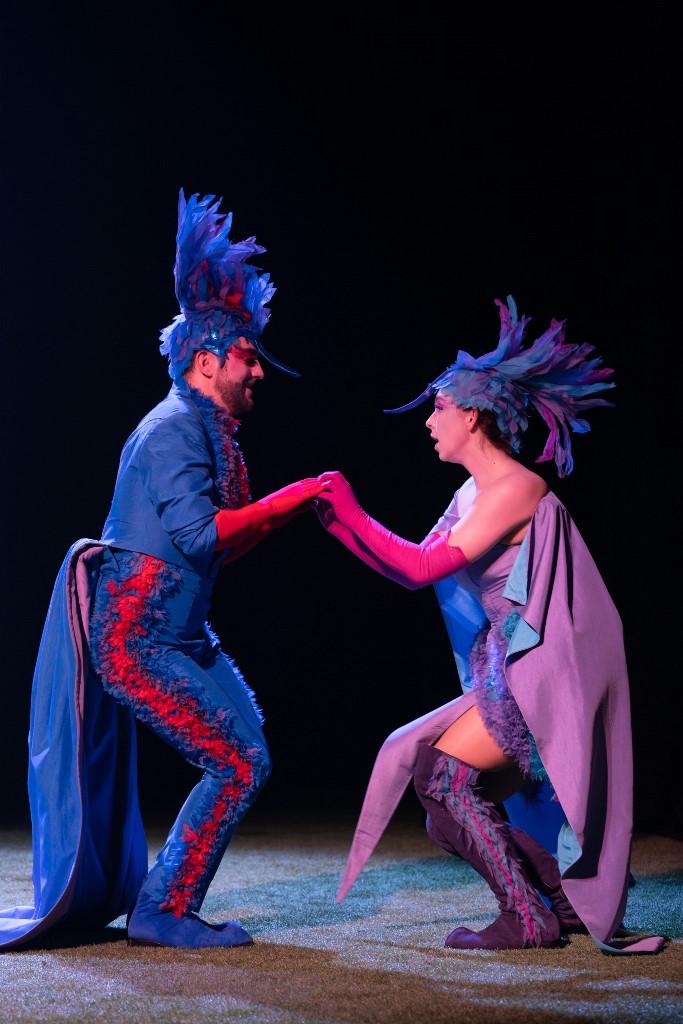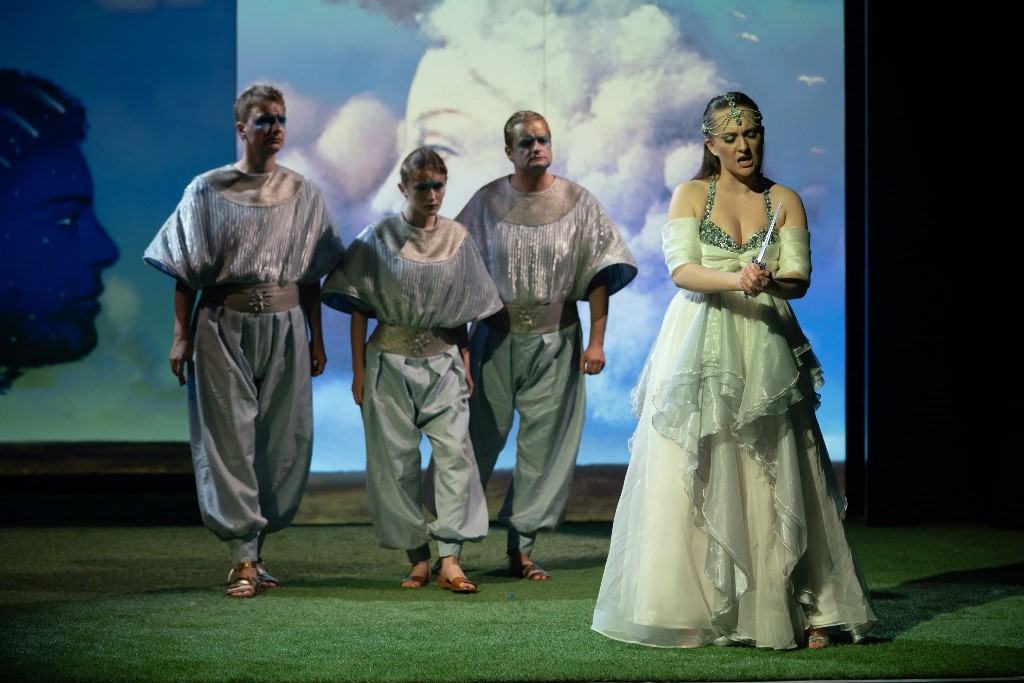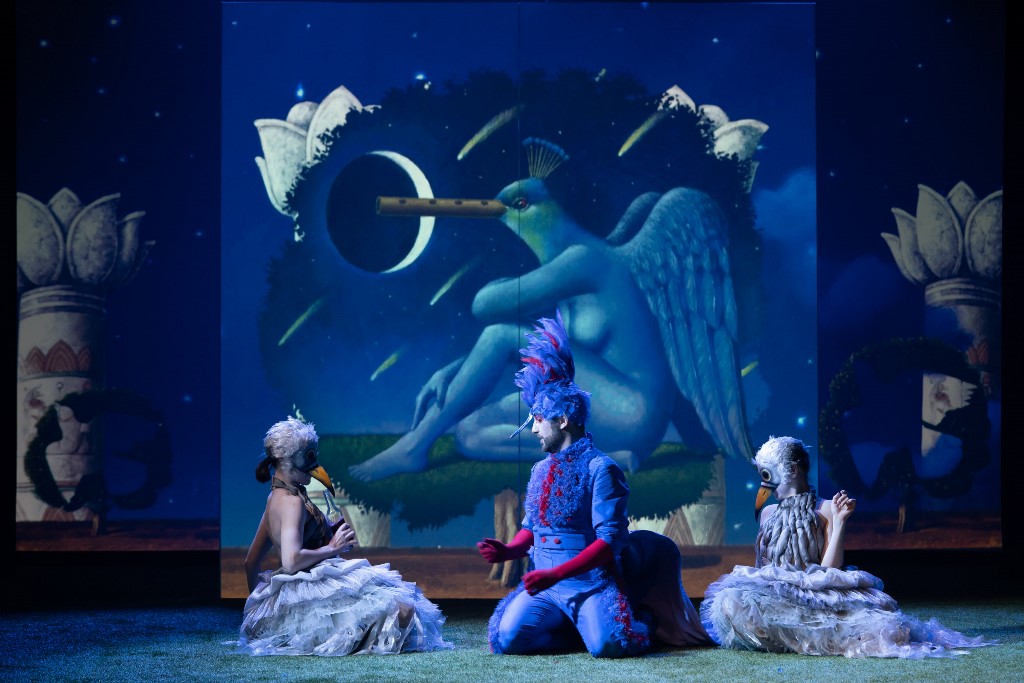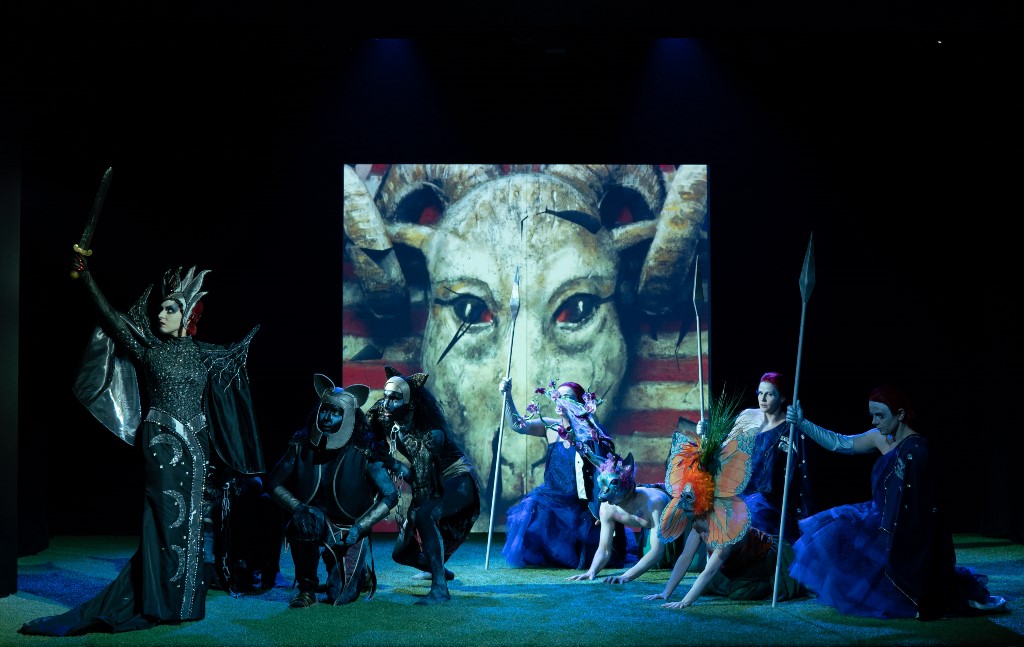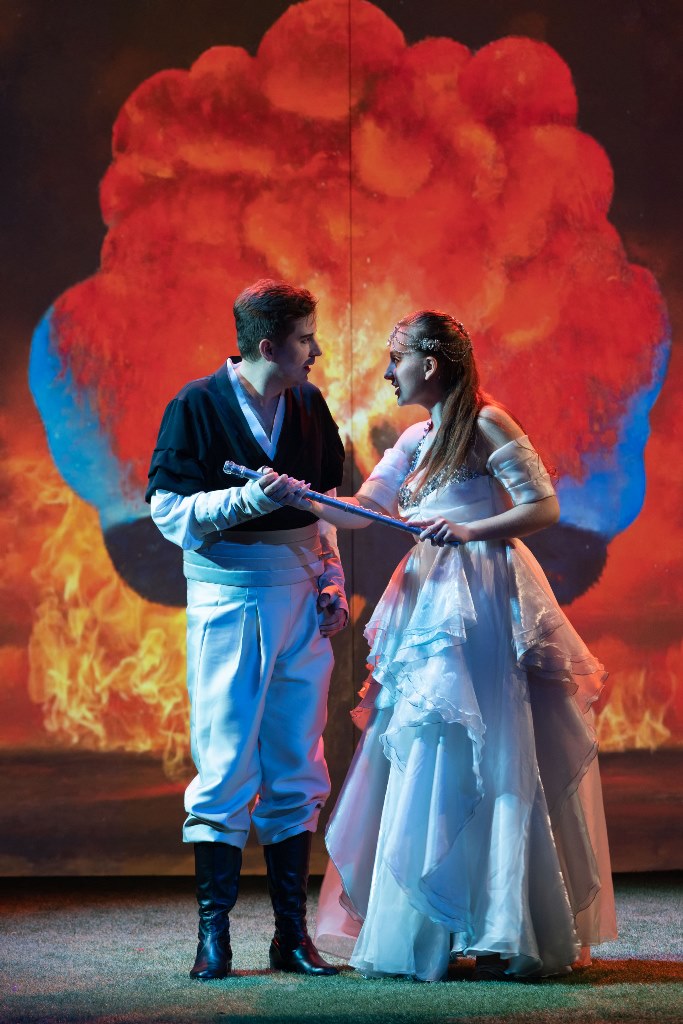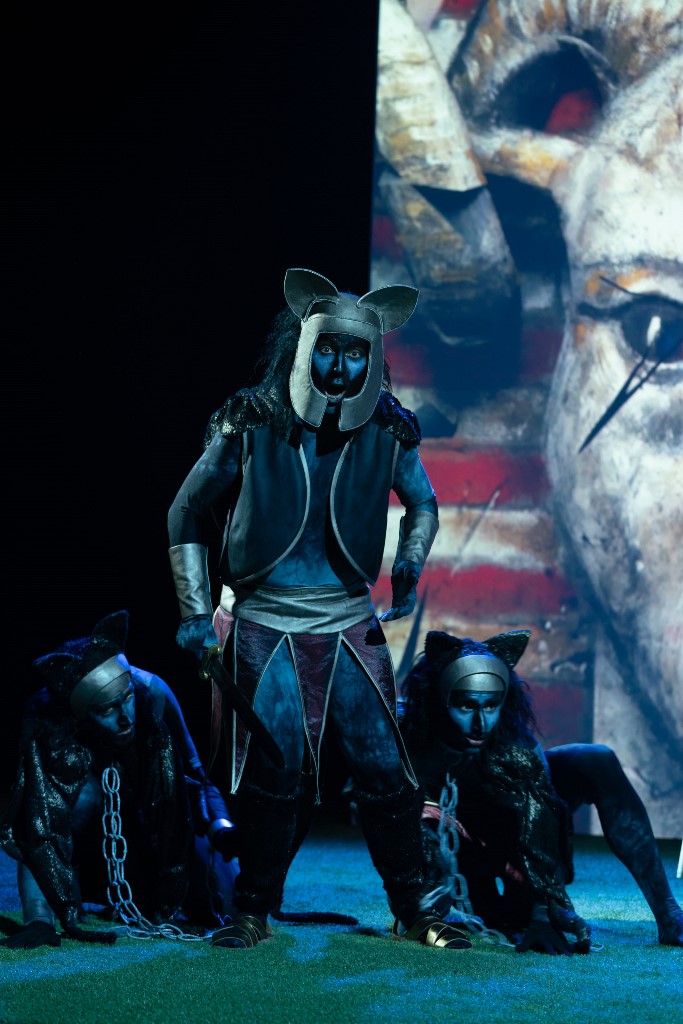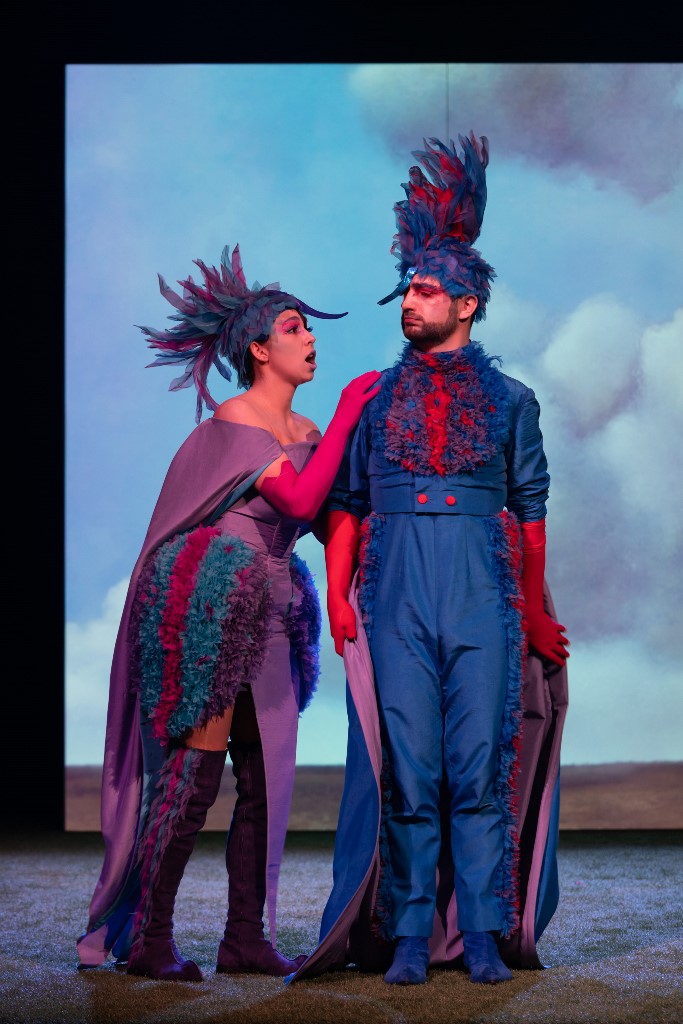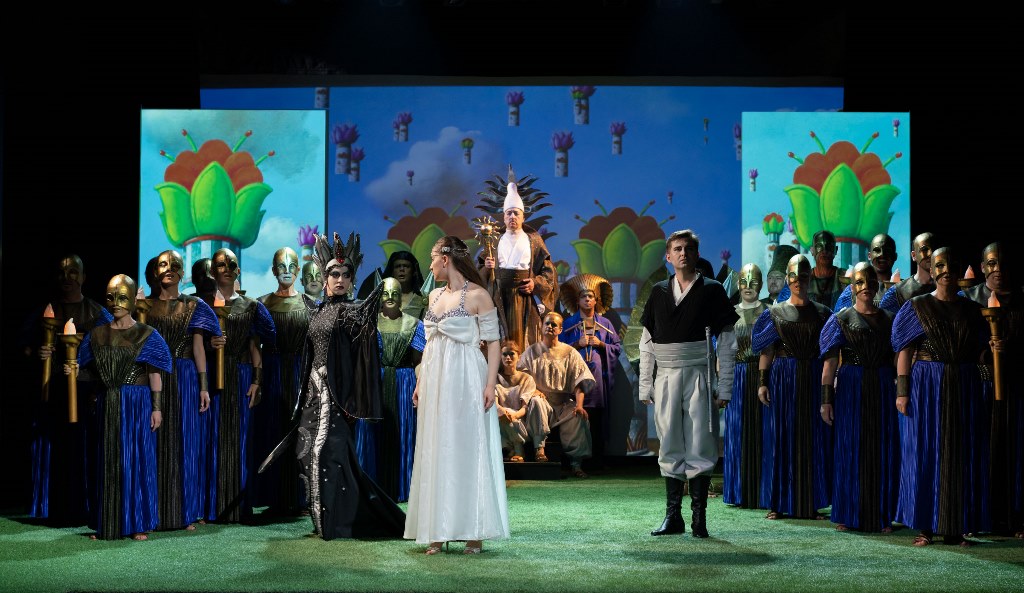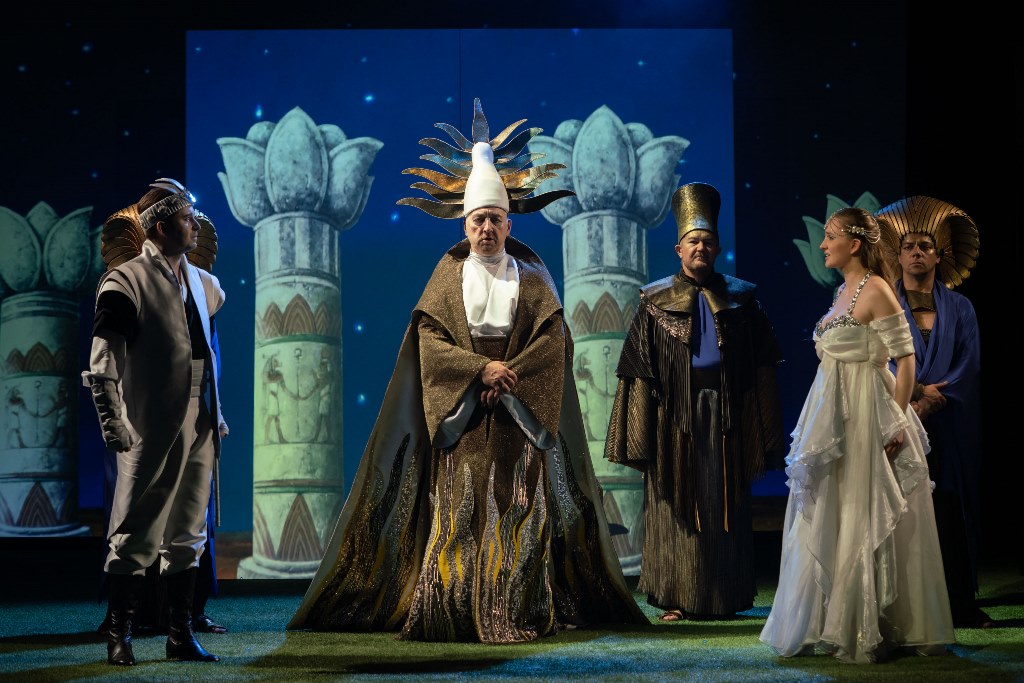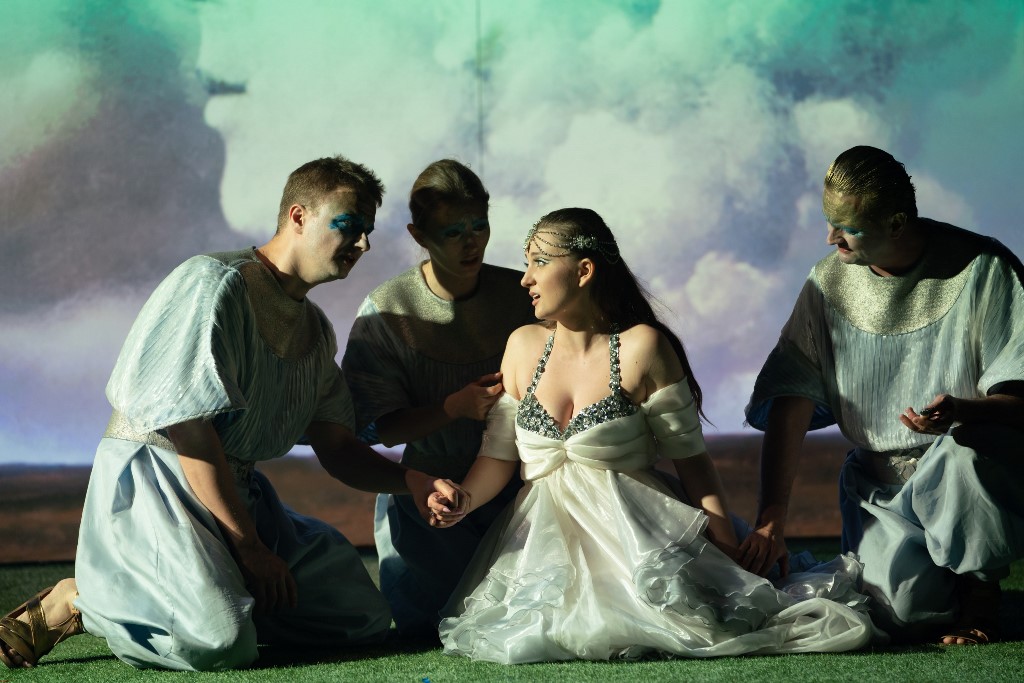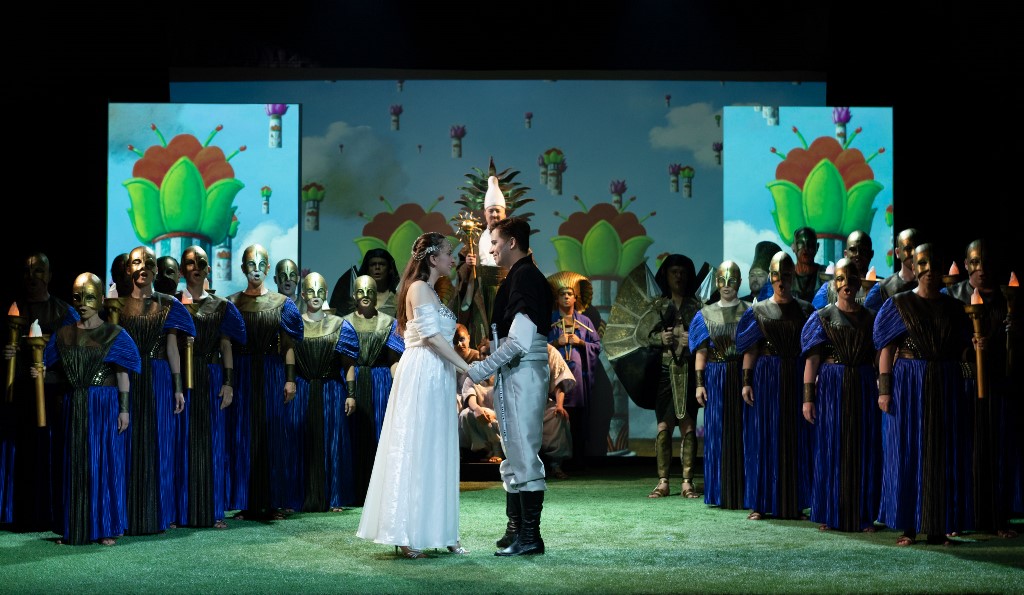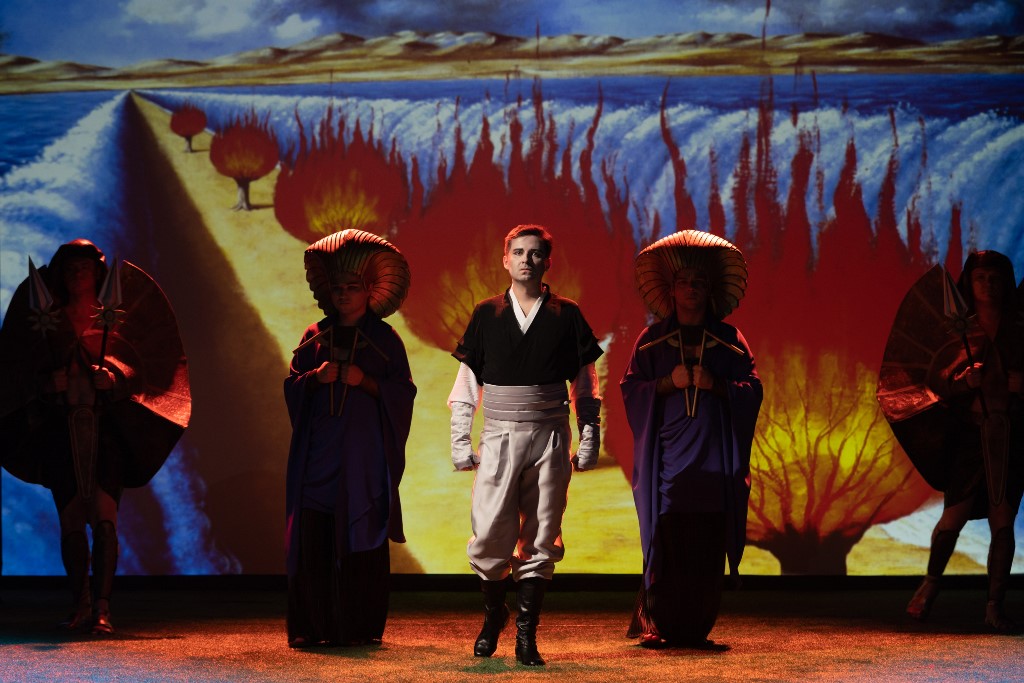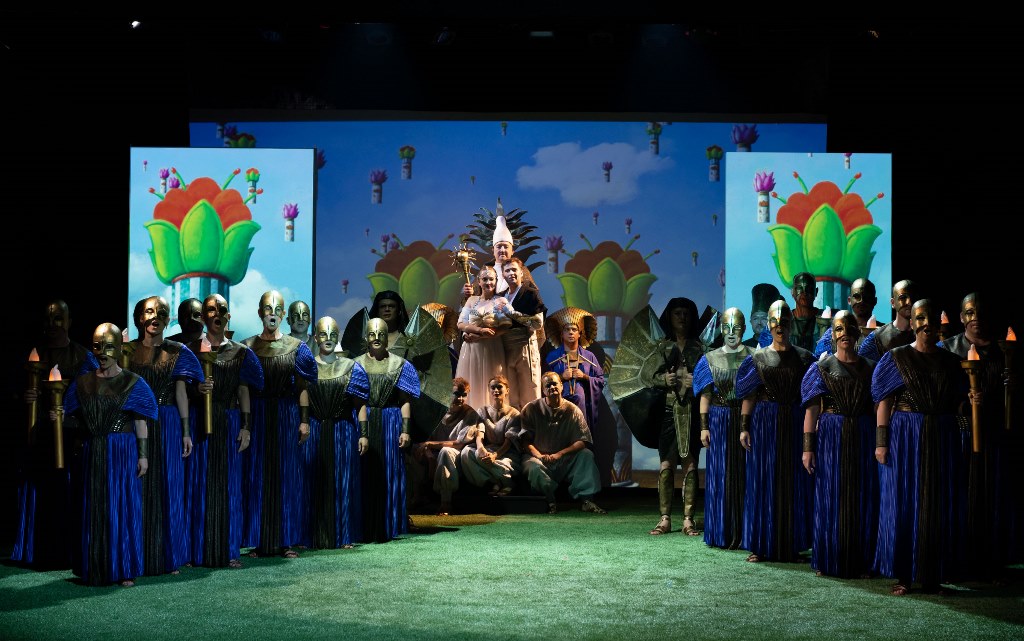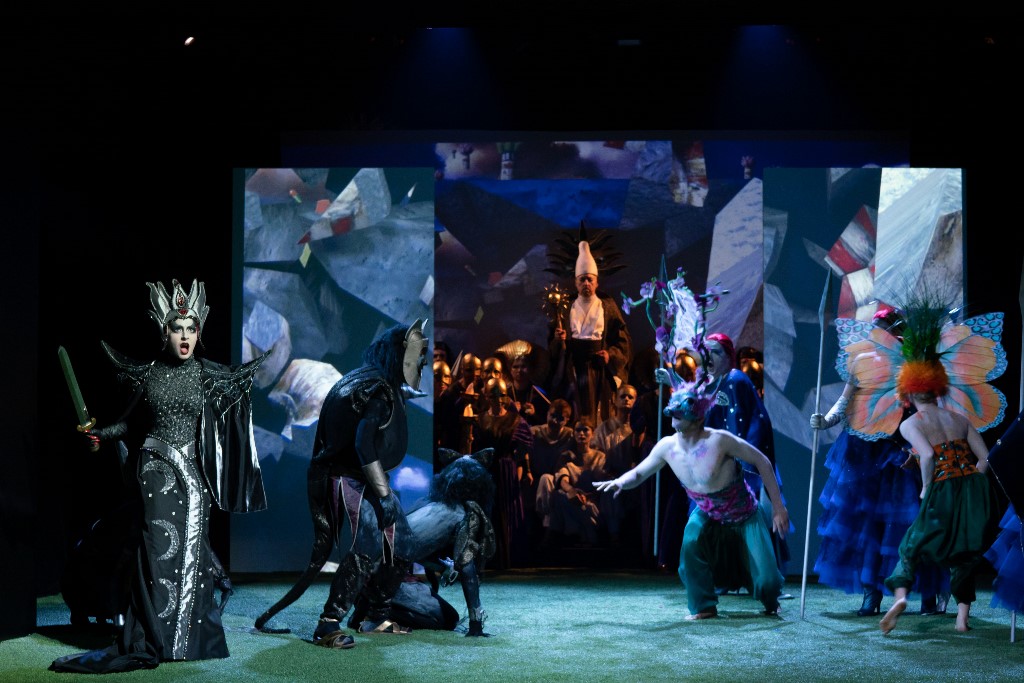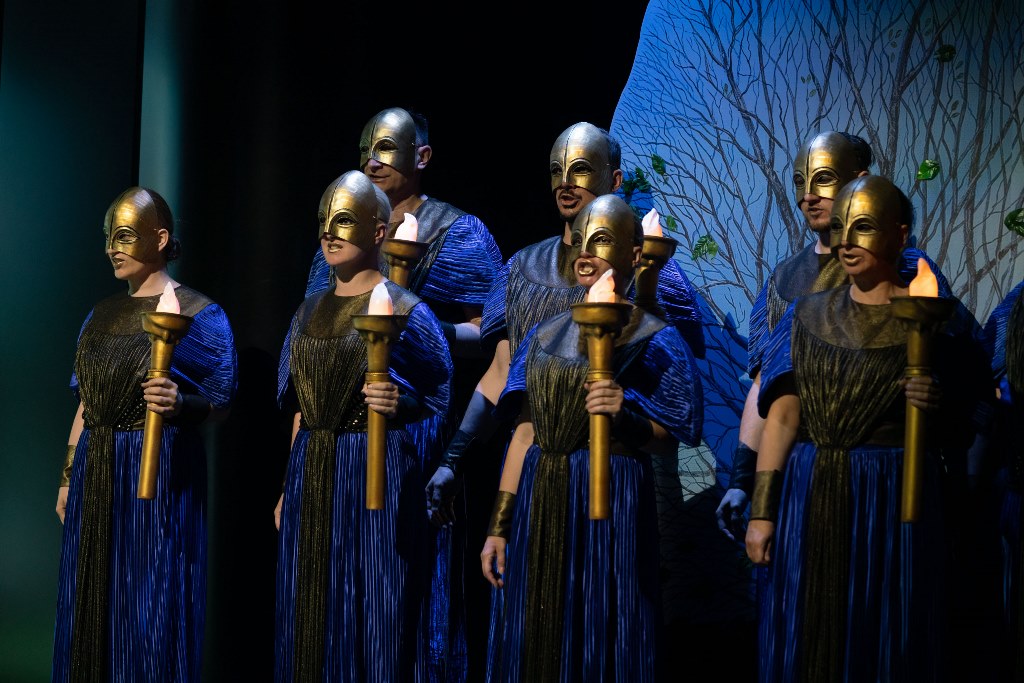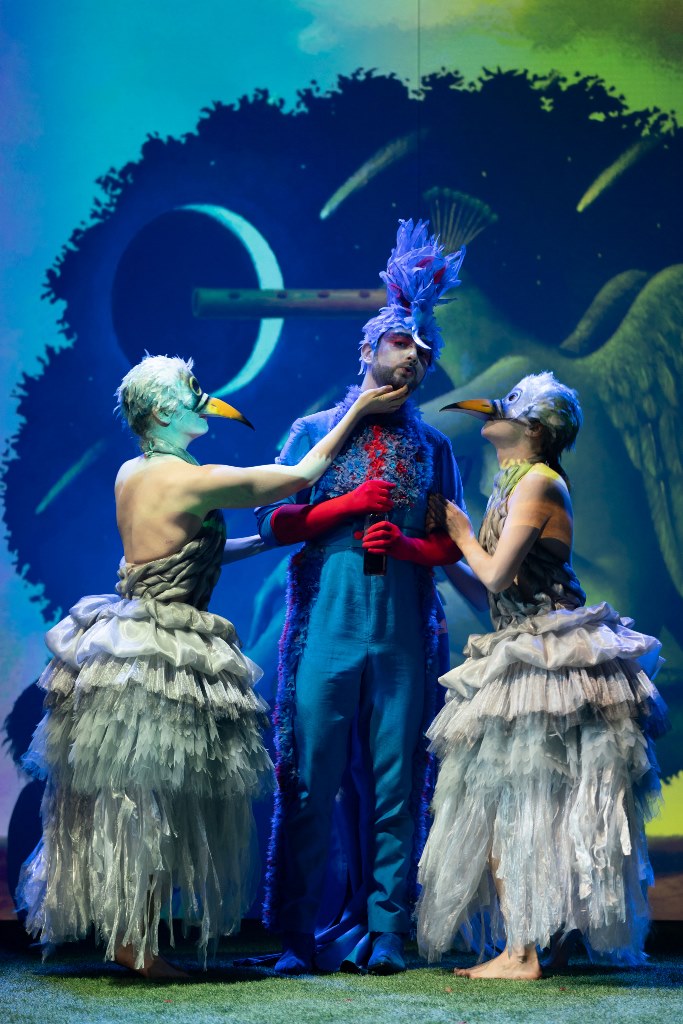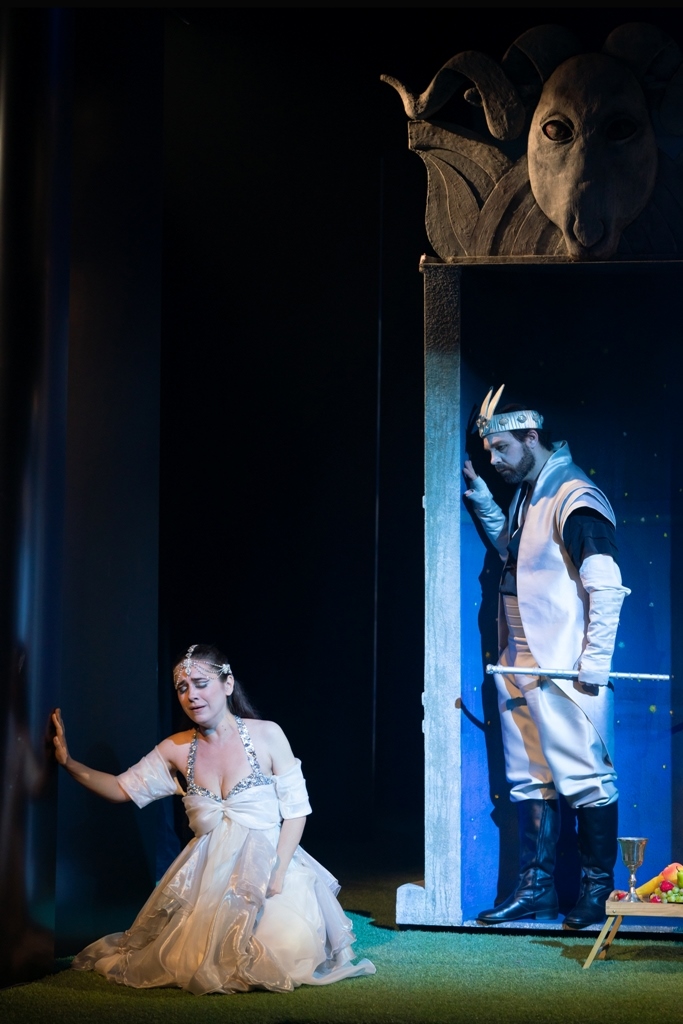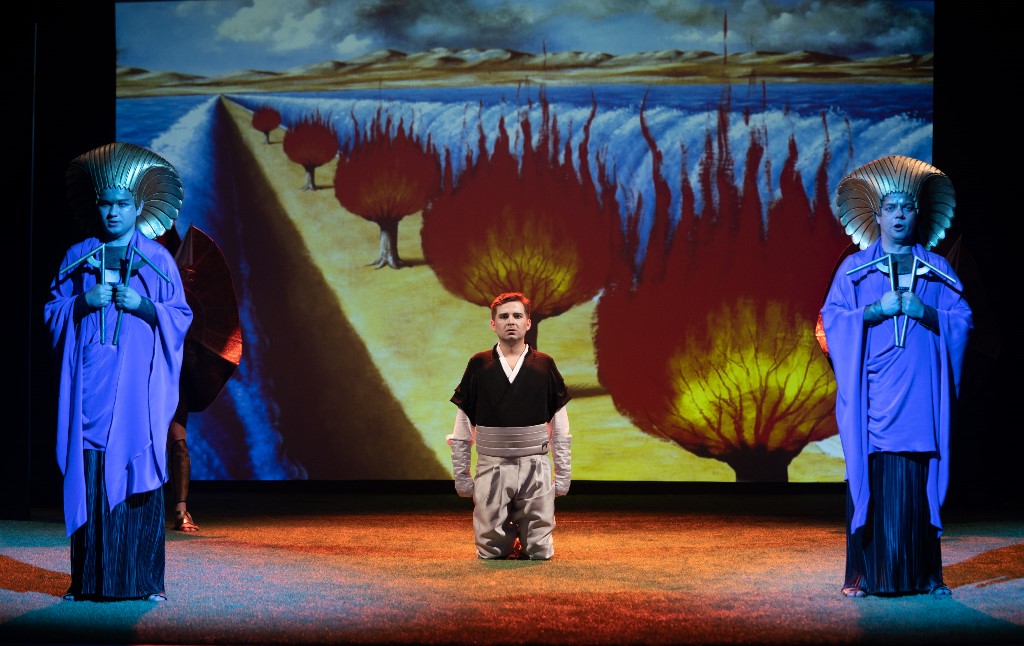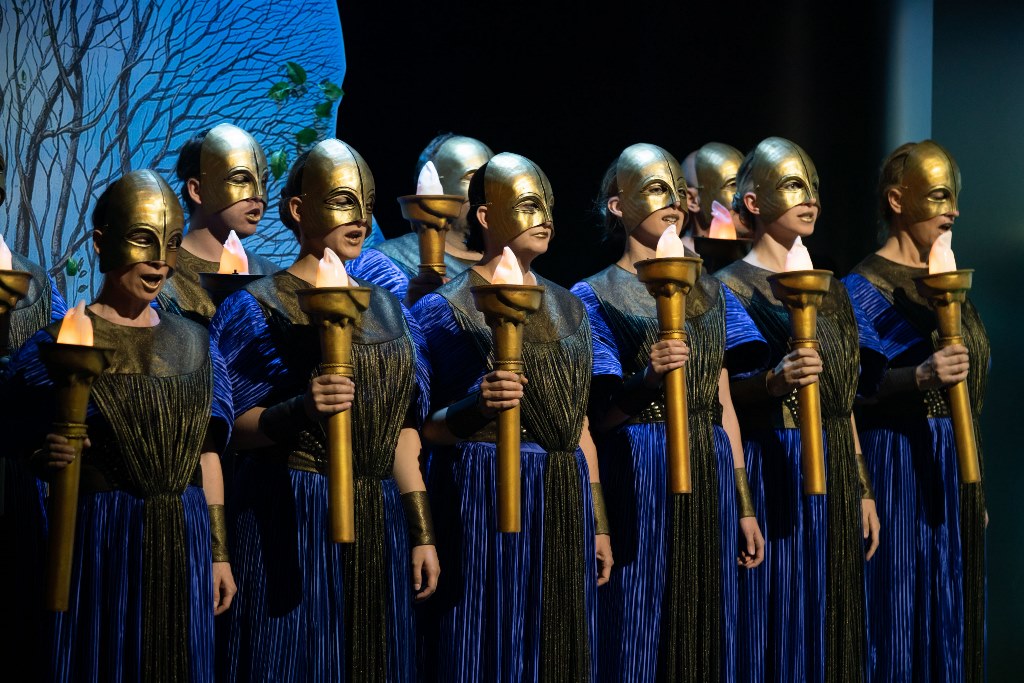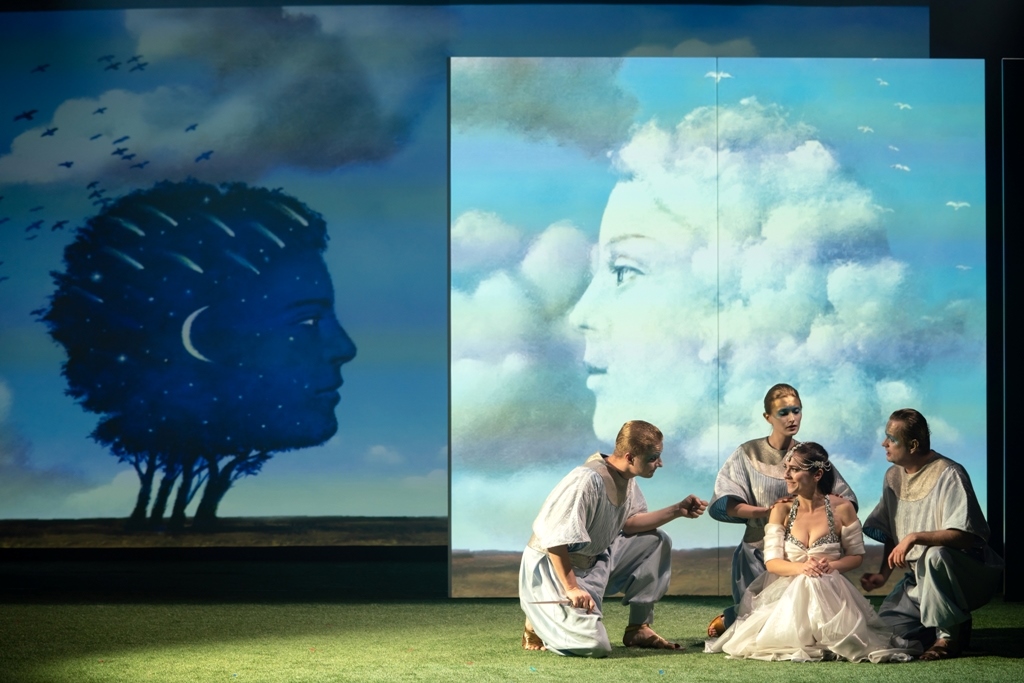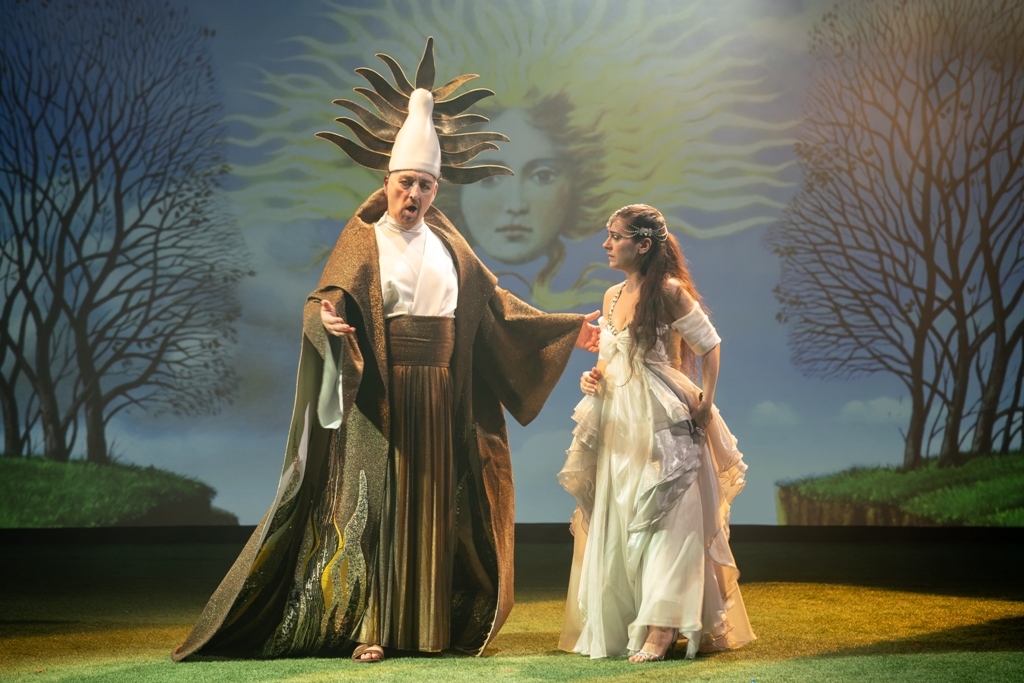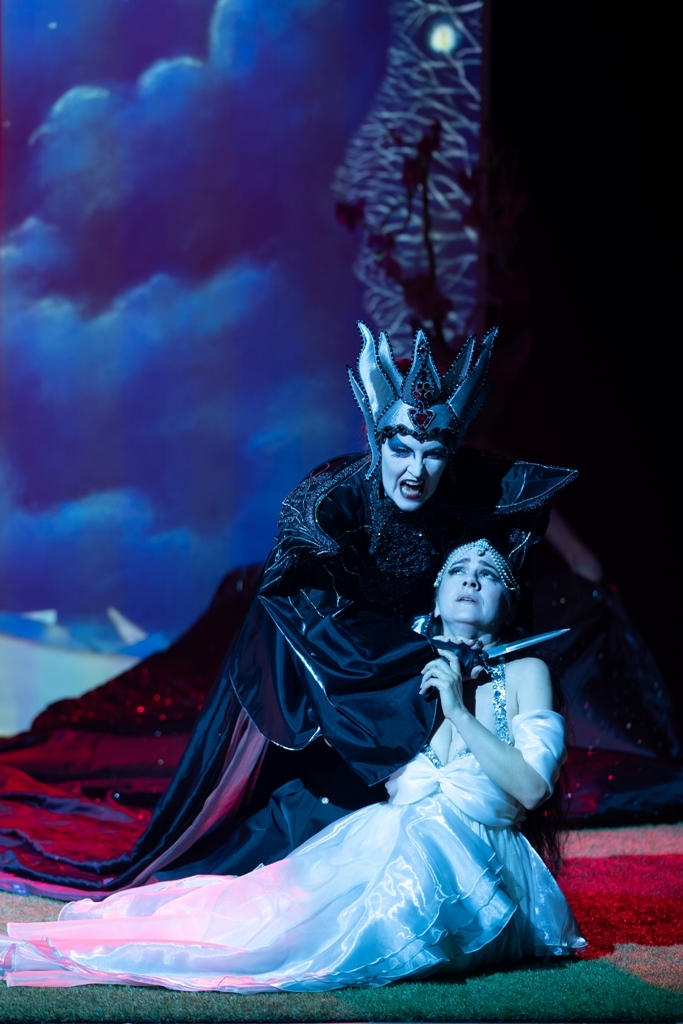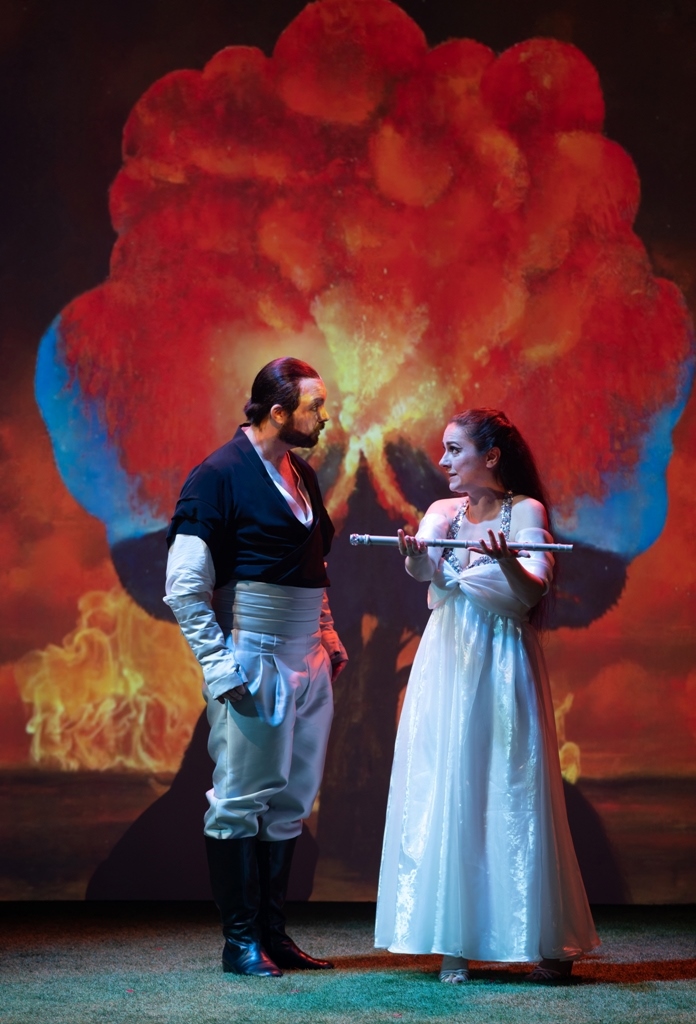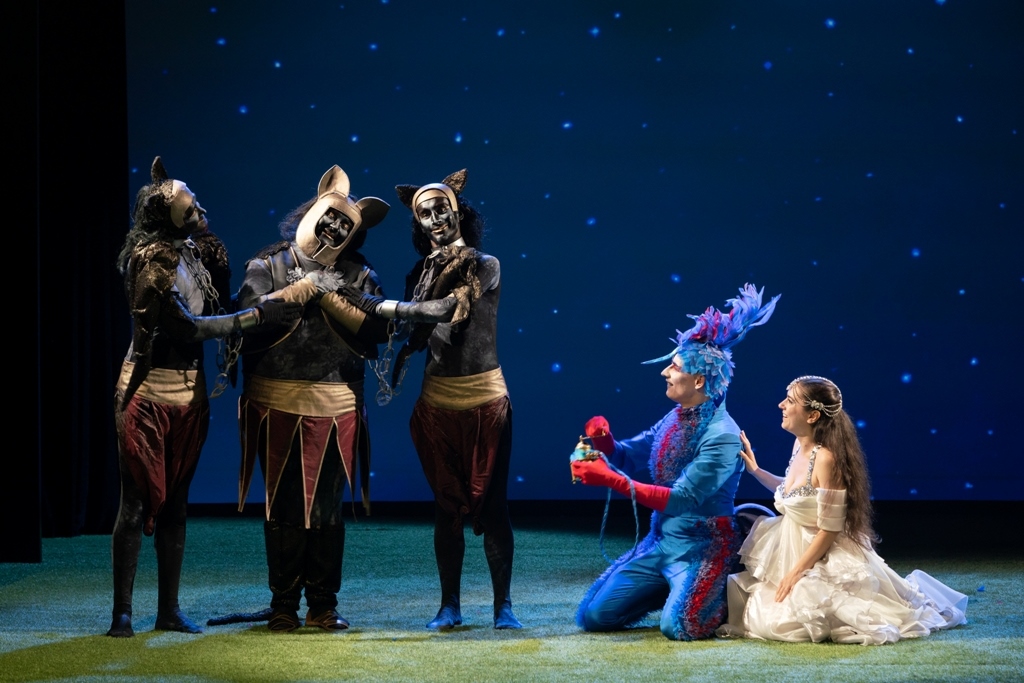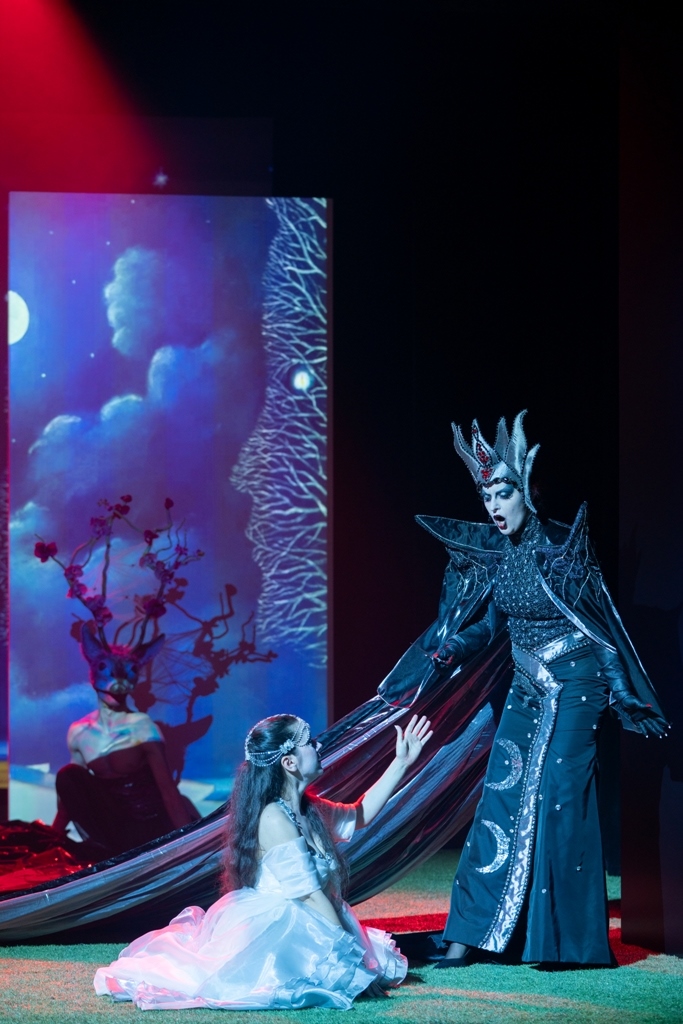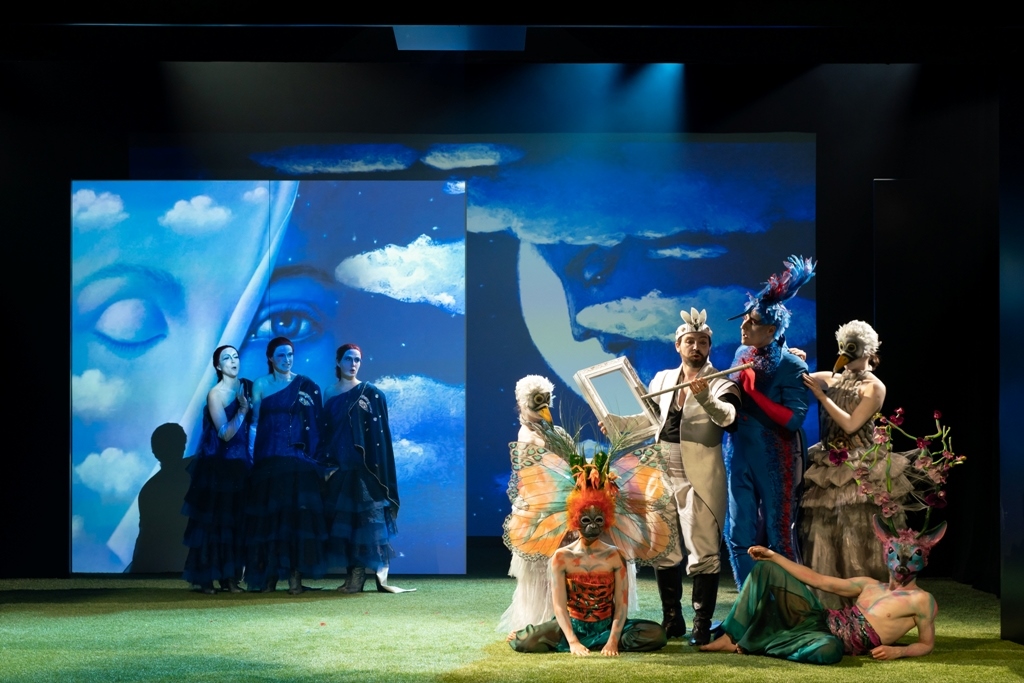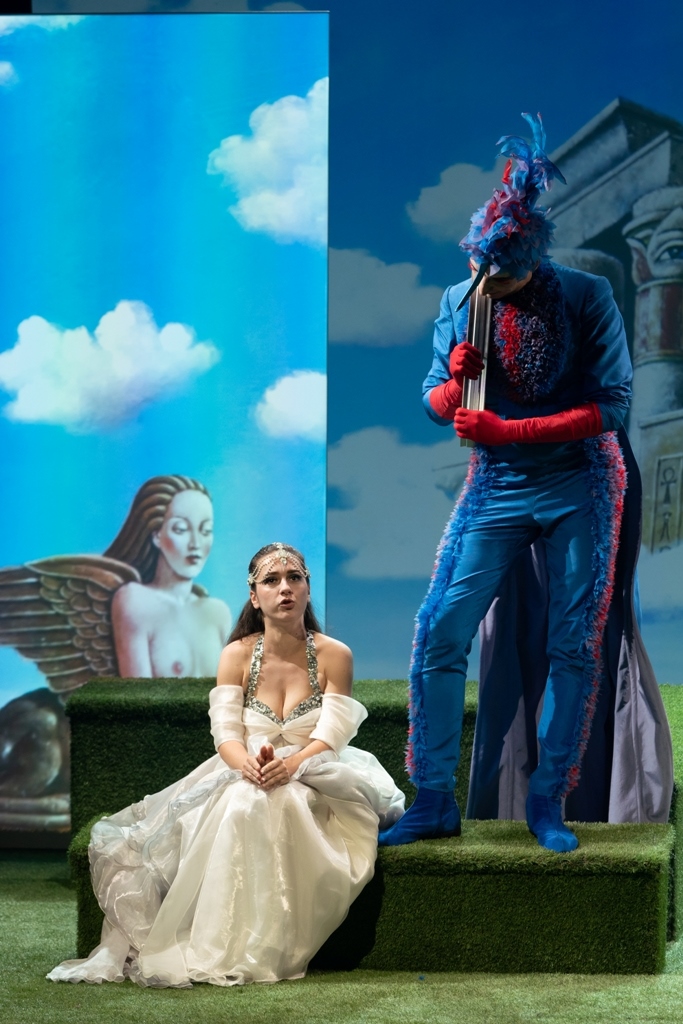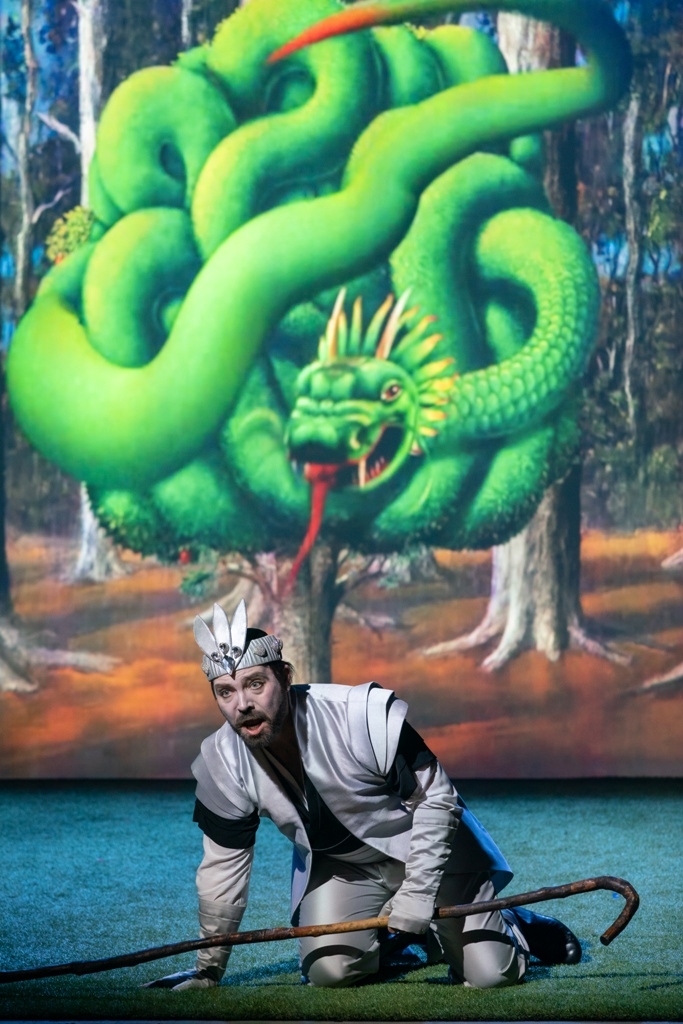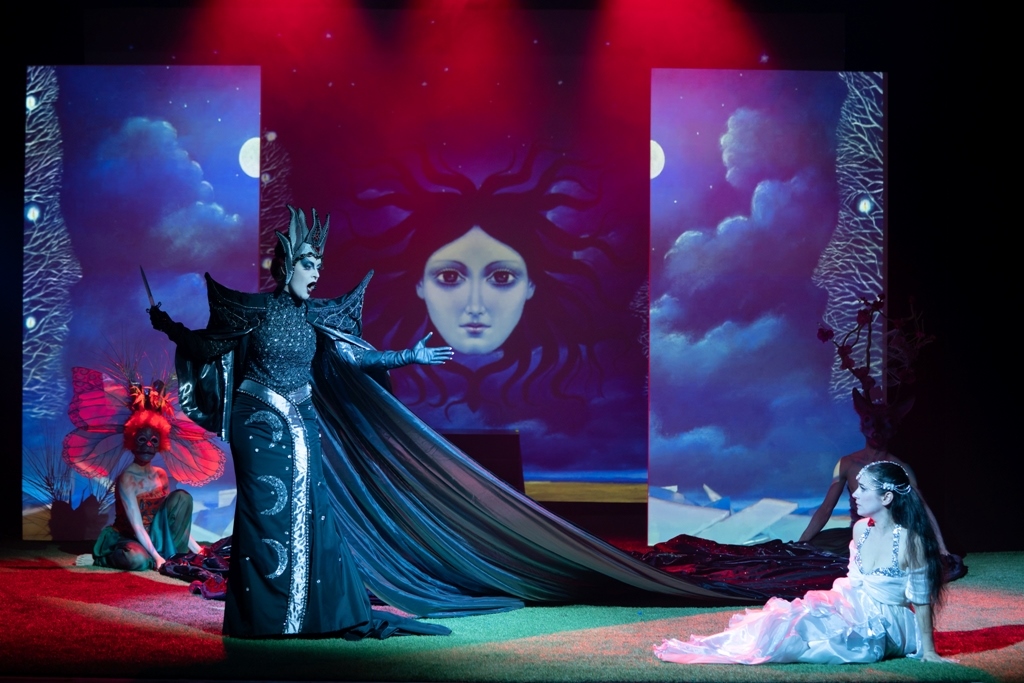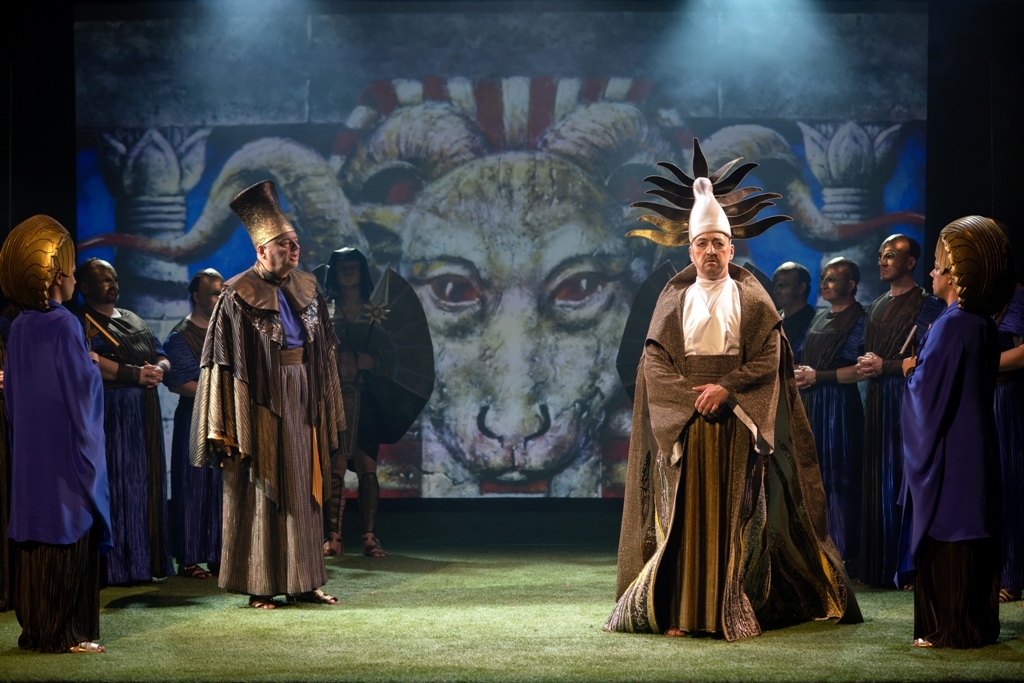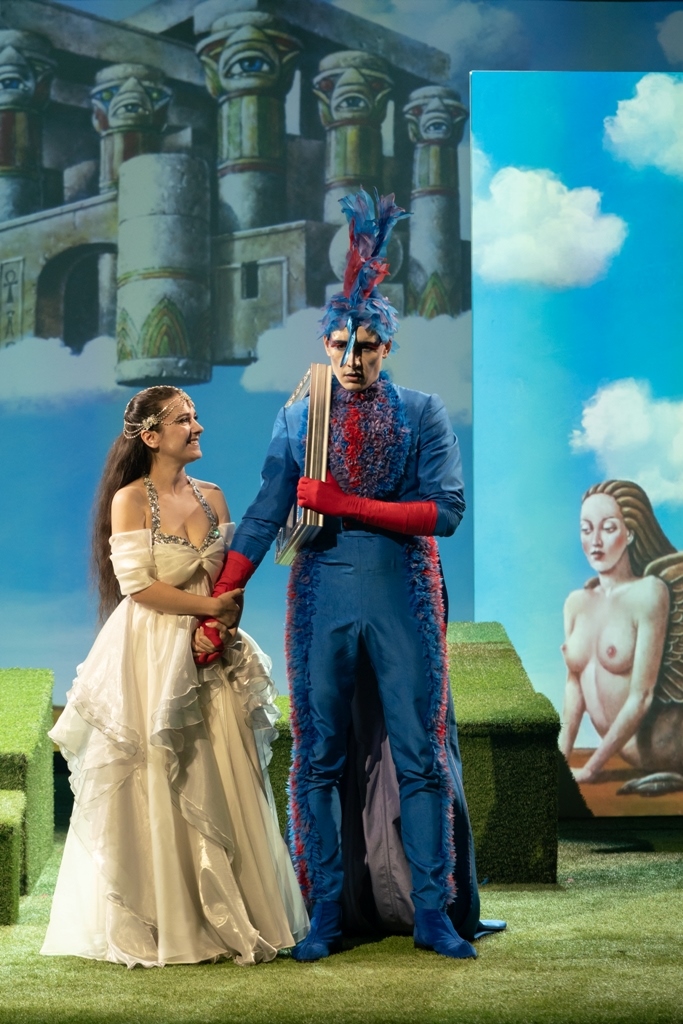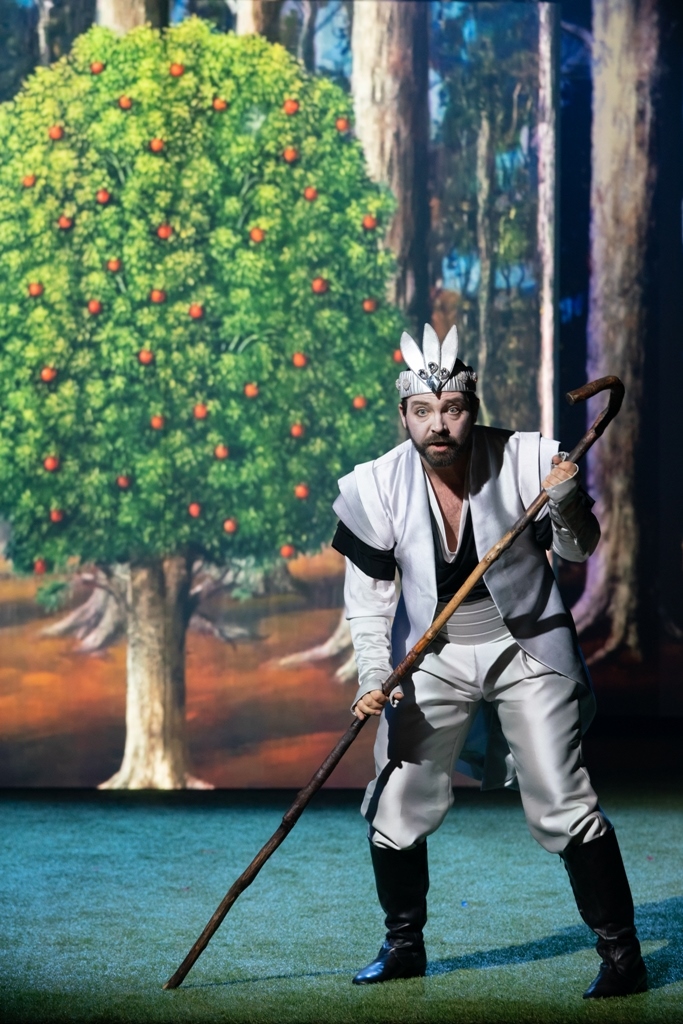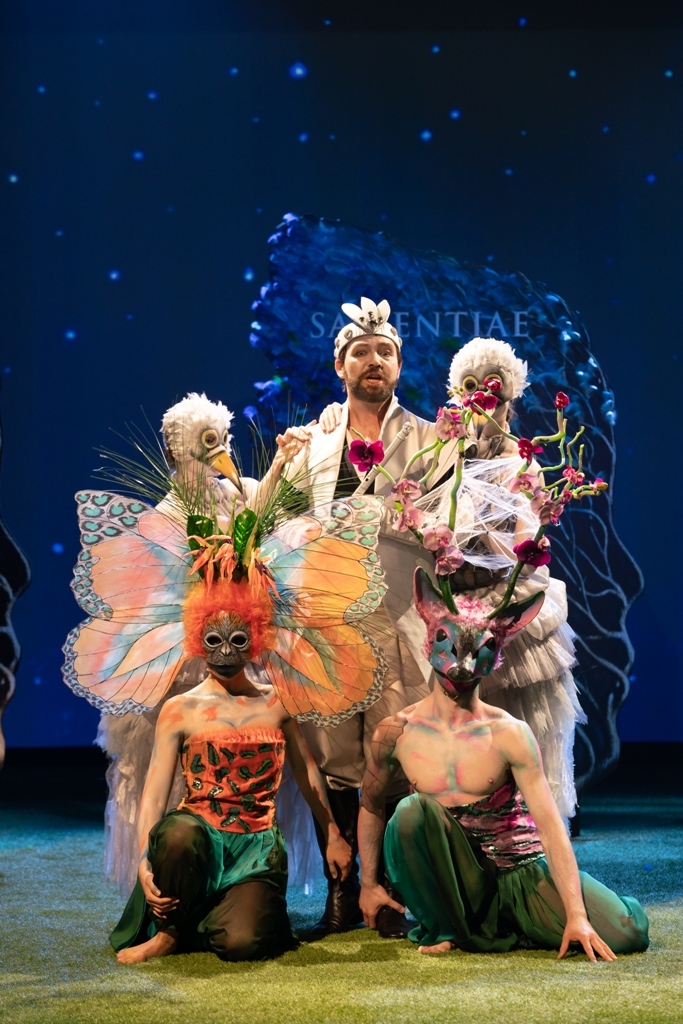33rd Mozart Festival in Warsaw
Theatre of the Warszawska Opera Kameralna
Wolfgang Amadeusz Mozart
The Magic Flute
Die Zauberflöte
Opera in two acts with dialogues in Polish
Composer | Wolfgang Amadeus Mozart
Libretto | Emanuel Schikaneder
Premiere | 13 June 2019
Music director: Marcin Sompoliński
Staging and director: Giovanny Castellanos
New production: Jolanta Denejko
Set design: Rafał Olbiński
Costumes: Marcin Łobacz
Choreography: Jakub Lewandowski
Lighting director: Damian Pawella
Multimedia/graphics: Sylwester Siejna
Sarastro – Remigiusz Łukomski
Queen of the Night – Joanna Moskowicz
Tamino – Aleksander Kunach
Pamina – Aleksandra Szmyd
Speaker – Szymon Kobyliński
Papageno – Artur Janda
Papagena – Katarzyna Drelich
Monostatos – Piotr Maciejowski
I Lady –
II Lady – Agnieszka Banach
III Lady – Katarzyna Nowosad
I Boy – Lucyna Białas
II Boy – Adrianna Jakubowska
III Boy – Tomasz Raczkiewicz
I Priest – Tomasz Grygo
II Priest – Łukasz Górczyński
Dancers
Bird of Paradise I – Maria Bijak
Bird of Paradise II – Agnieszka Borkowska
Magical Animal I – Anna Szpaczyńska
Magical Animal II – Kamil Wawrzuta
Slave I – Jarosław Mysona
Slave II – Patryk Gnaś
Vocal
Vocal Ensemble of the Warszawska Opera Kameralna
Chorus Master: Krzysztof Kusiel-Moroz
Period Instrument Orchestra of the Warszawska Opera Kameralna
Musicae Antiquae Collegium Varsoviense
The Magic Flute KV 620 is one of the greatest operas. A fairy tale, a fable, a utopia? A socio-political story? A religious-philosophical treatise? Everything and nothing. And everything. For although volumes, thousands of volumes, have been written about Die Zauberflöte, the piece never ceases to amaze, to fascinate, to exhaust itself, or open itself up to new interpretations. “Die Zauberflöte”, wrote Alfred Einstein, “is one of those pieces that can enchant a child at the same time that it moves the most worldly of men to tears, and transports the wisest. Each individual and each generation find something different in it; only barbarians have nothing to say here”. And then Stefan Jarociński: “this childish fairy tale in Mozart’s hands […] transformed into a suggestive vision of good and evil, love and hatred, wisdom and madness, honesty and lies, courage and cowardice, into a sublime image of humanity climbing with the greatest difficulty to a higher level in order to achieve true happiness”.
The Magic Flute is Mozart’s last opera, although in the catalogue of his works, we find La clemenza di Tito listed after it. But it was the premiere of The Magic Flute took place later, on 30 September 1791, at the Theater auf der Wien with Emanuel Schikaneder (on the same day in Prague, the last performance of La clemenza di Tito took place, as the composer himself wrote in a letter to Konstanze).
It was Schikaneder who, a few months earlier, came to Mozart with the proposal to write a new opera. He also directed The Magic Flute and played the role of Papageno. Schikaneder used magic tricks, animals, and Baroque machinery with a flying mechanism. The whole thing cost him over 5,000 guilders (several hundred thousand of today’s Polish złoty). The new singspiel had to be a feast, a delightful show in a changing, gorgeous scenery (garden, trees, mountains, stars, palace, grove, temple, pyramids, waterfall, volcano). The Freihaustheater, located in a courtyard of a townhouse, was after all a private venture supported by a patron, not by the state. When it same to the battle for the audience, what mattered was the effect.
All of Vienna was delighted with the new opera. “My greatest pleasure was the silent applause!” Mozart rejoiced like a child in a letter to Konstanze. – “One can see more and more clearly how this opera is soaring”. “The Magic Flute” even enchanted Salieri and Caterina Cavalieri, who said that it was “a true opera” worthy of being staged at the greatest celebrations, “and listeners will certainly want to hear it more than once, for they have certainly not seen a more beautiful and enjoyable performance”. Not once, not twice, not three times. Mozart’s music circulates, gets under the skin, enchants. It uplifts. It keeps you awake.
***
It is no different on the stage of the Warszawska Opera Kameralna – in a colourful staging by the prematurely deceased Giovanny Castellanos, with projections based on paintings and prints by the outstanding Polish artist Rafał Olbiński. The post-performance reviews were more than enthusiastic:
The opera The Magic Flute has already been subjected to various interpretations, here it’s been used traditional, conservative and fairy-tale. The scenery was designed in accordance with his recognizable style of naive surrealism by Rafał Olbiński, and the costumes full of fantasy, slightly based on ancient Egyptian motifs were proposed by Marcin Łobacz. The chamber choir was prepared by Krzysztof Kusiel-Moroz. The honorary patronage over the premiere was taken by the Austrian Ambassador Dr. Werner Almhofer. As we all know, nobody can take Mozart away from Austrians (Joanna Tumiłowicz, Maestro.pl).
The performance is visually pretty, attractive and audience-friendly, which is not often the case in contemporary theatre. The producers did not try to discover hidden meanings in Mozart’s masterpiece, although there are plenty of them, which other producers are trying to prove – sometimes even by force. The hero of the Warsaw production is also Marcin Łobacz. His costumes inspired by the aesthetics and colours of Rafał Olbiński’s works create a coherent, surreal world. It is worth appreciating in this designer a great sense of colour nuances and the ability to combine them in various variants (Jacek Marczyński, „Rzeczpospolita”).


